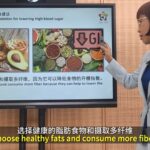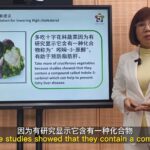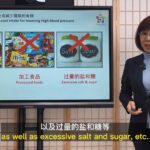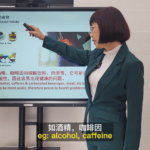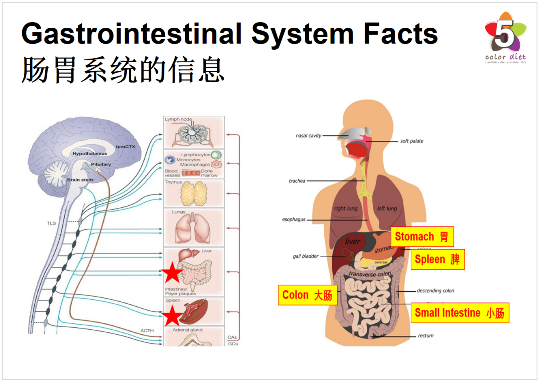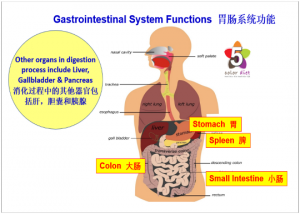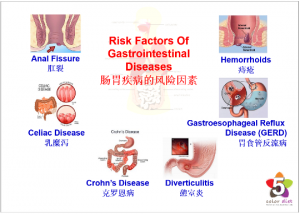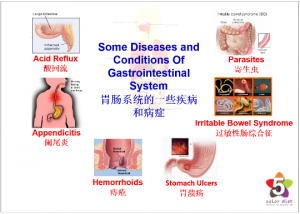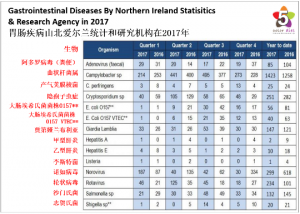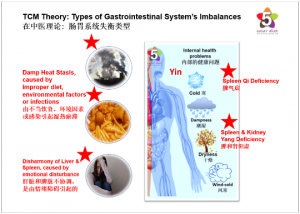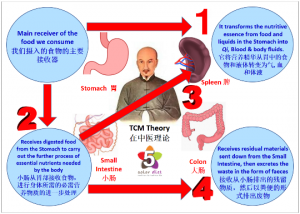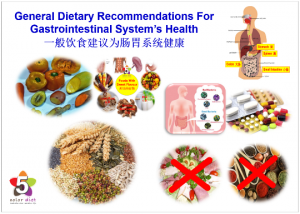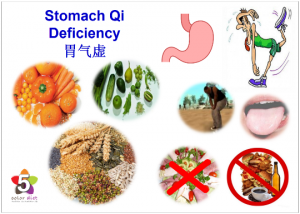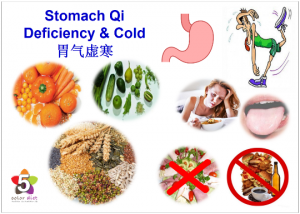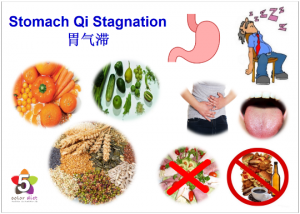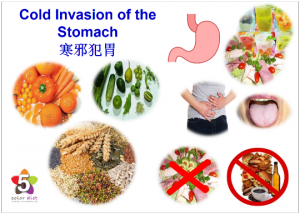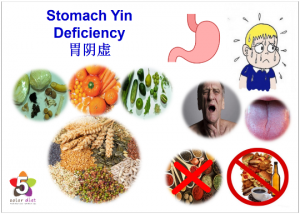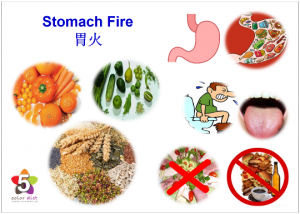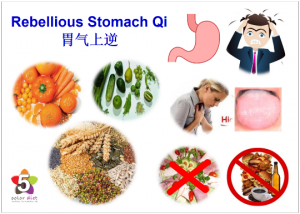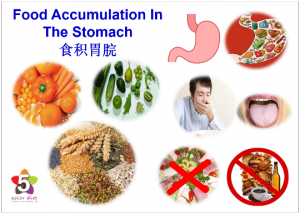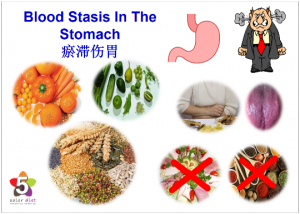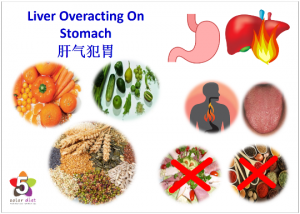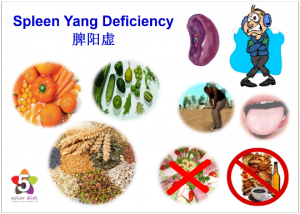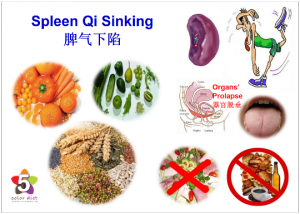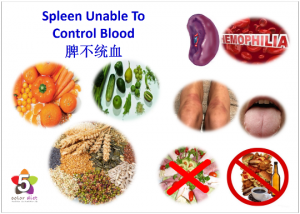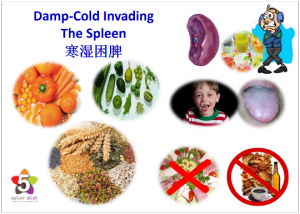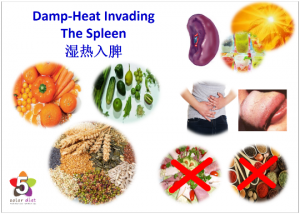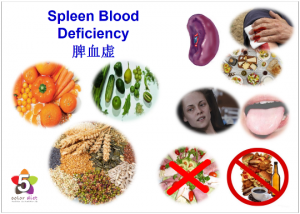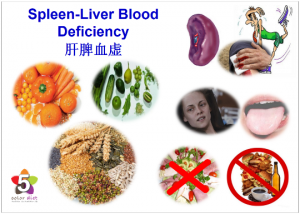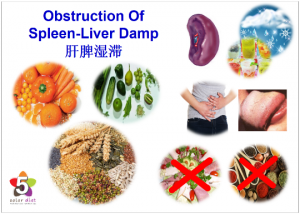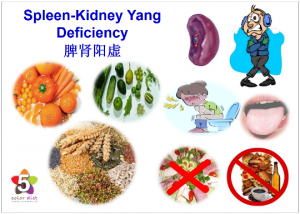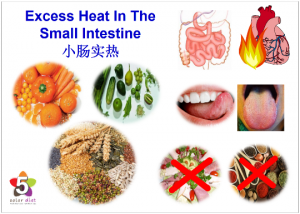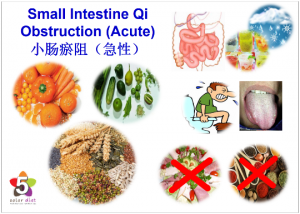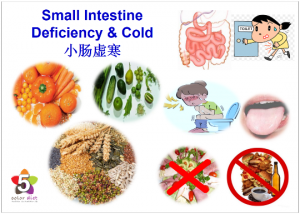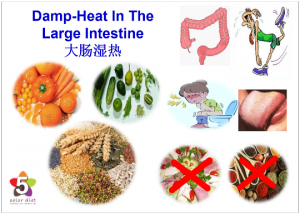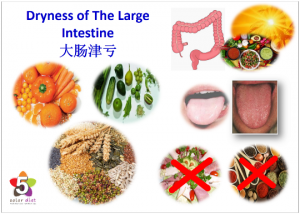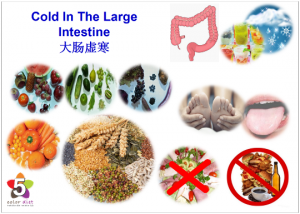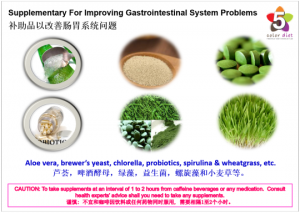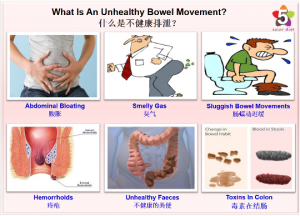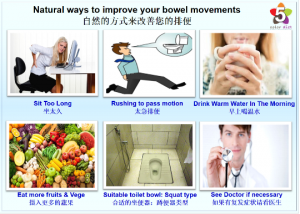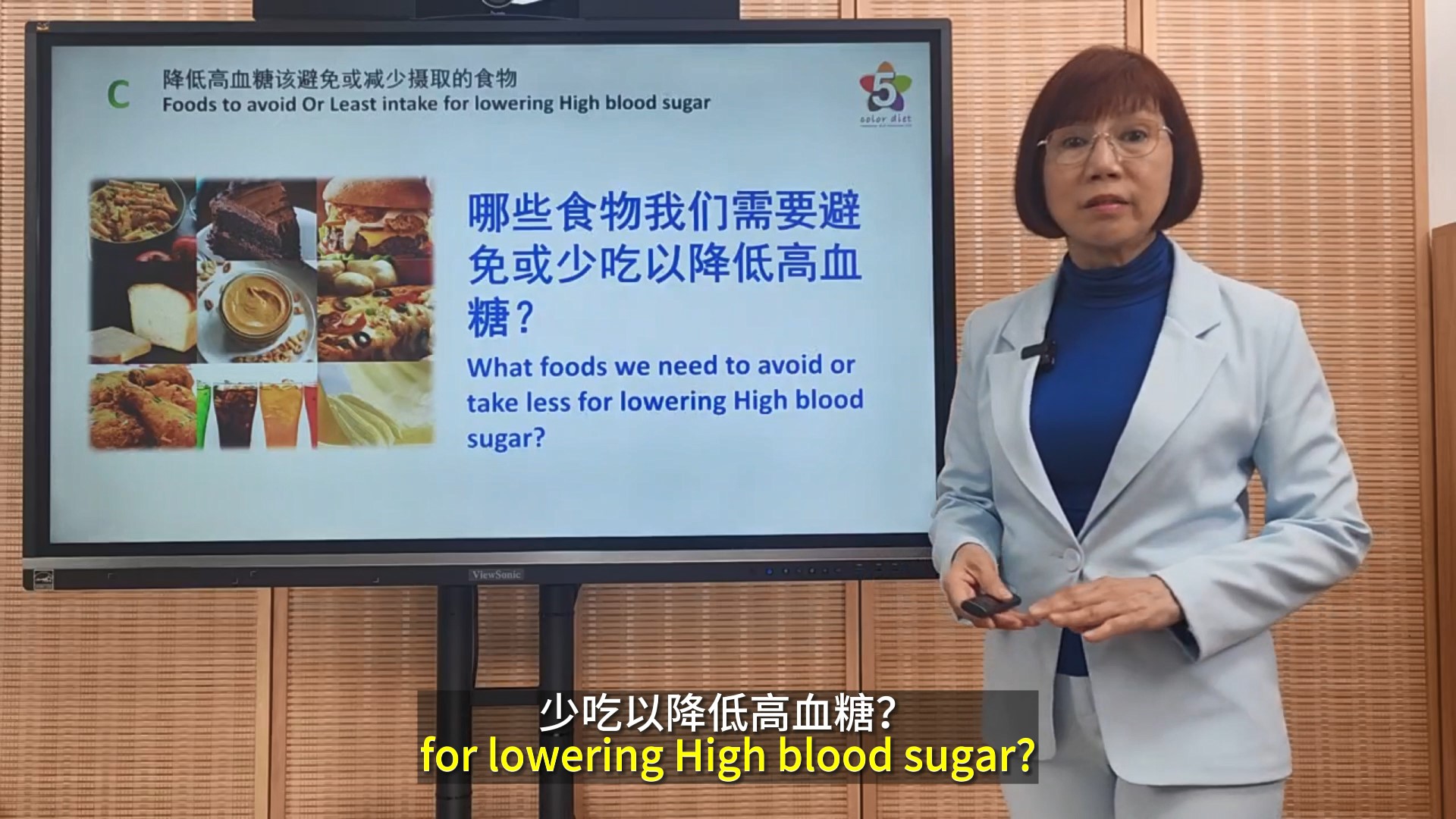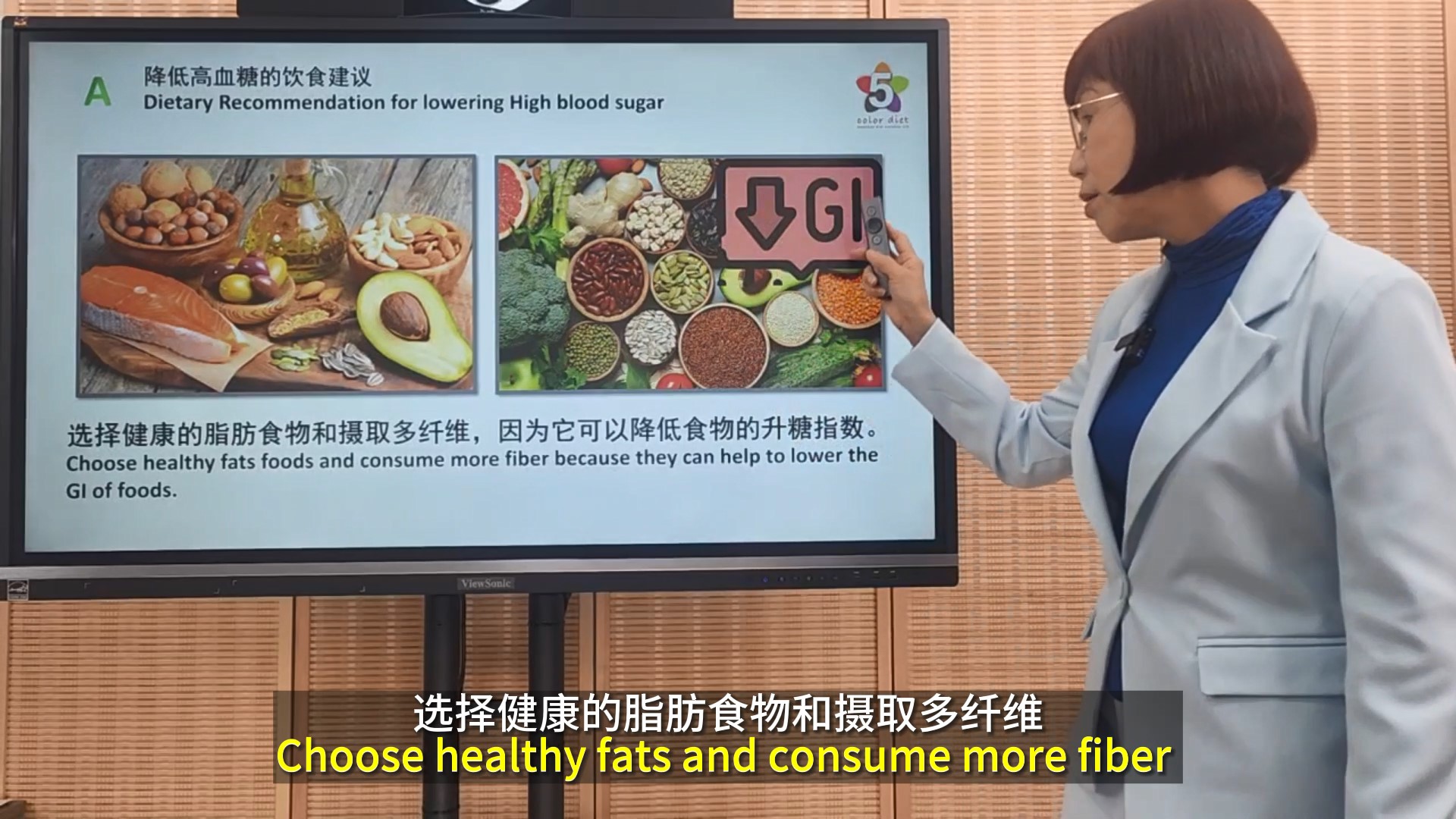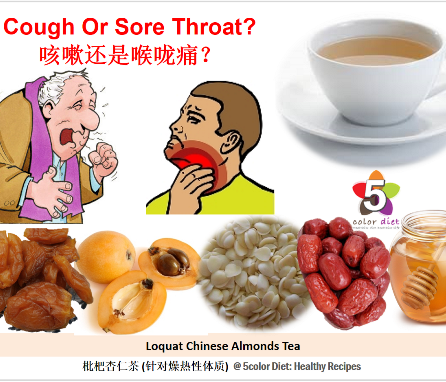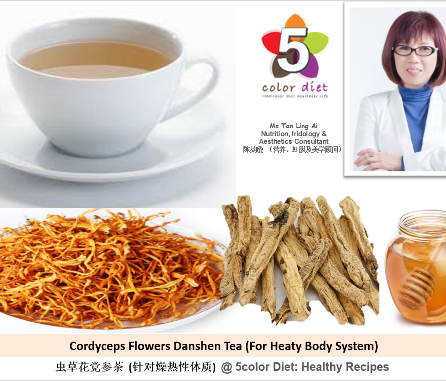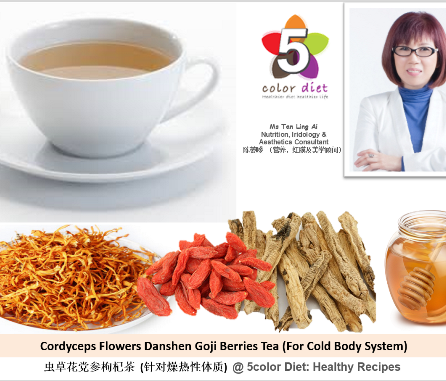
Gastrointestinal System Overview
Digestion is the complex process of turning the food you eat into nutrients which the body uses for energy, growth & cell repair needed to survive. The digestion process also involves creating waste to be eliminated. The digestive tract (or gastrointestinal tract) is a long twisting tube that starts at the mouth & ends at the anus. It is made up of a series of muscles that coordinate the movement of food, other cells that produce enzymes & hormones to aid in the breakdown of food. Along the way are three other organs that are needed for digestion: liver, gallbladder & pancreas.
The primary purpose of the gastrointestinal tract is to break food down into nutrients, which can be absorbed into our body to provide energy. Firstly, food will be ingested into our mouth to be mechanically processed & moistened. The act of chewing food is to mix it with our saliva which is rich in digestive enzymes & begins to break down the food even before it reaches our stomach. Chewing our foods thoroughly at least 20 times per bite will make it easier for our intestines to absorb nutrients from the food particles as they pass through & this process will help to improve our digestive problems. This also prevents improperly digested food from entering our blood & causing a wide range of adverse effects to our health.
Secondly, digestion occurs mainly in our stomach & small intestine where proteins, fats and carbohydrates are chemically broken down into their basic building blocks. Smaller molecules are then absorbed across the epithelium of our small intestine & subsequently enter the circulation. While food is in the small intestine, nutrients are absorbed through the walls & into the bloodstream. What is leftover (the waste) moves into the large intestine (large bowel or colon). Among humans over five years old, the small intestine tends to vary in length of 13–23 feet.
The colon (large intestine) is a 5-7 feet long muscular tube that connects the small intestine to the rectum. It is made up of the cecum, the ascending (right) colon, the transverse (across) colon, the descending (left) colon & the sigmoid colon which connects to the rectum. Our large intestine plays a key role in reabsorbing excess water. Finally, undigested material and secreted waste products are excreted from our body via defecation (passing of feces). Stool, or waste left over from the digestive process, passes through the colon by means of peristalsis, first in a liquid state & ultimately in solid form and normally takes about 36 hours for stool to get through the colon.
Most people are not aware that a major portion of our nervous system is located in our intestines, also known as the ‘enteric nervous system’ by doctors or more commonly, as our ‘second brain’. In fact, more than 90% of the body’s serotonin is produced in the gut, as well as about 50% of the body’s dopamine. Furthermore, your intestines produce & co-regulate 30 other neurotransmitters identical to those found in your brain and are used by your central nervous system to regulate mood, stress levels, sleep patterns, mental functioning and any number of other essential body processes. An imbalanced, damaged or poorly functioning digestive system whether that is due to antibiotic use, diet and lifestyle or overconsumption of irritating foods will interfere with the functioning of this second brain & has been implicated in depression, mood disorders, immune system disruption and many other common diseases. Sluggish or incomplete bowel movements will also leave behind toxins that may cause damage to both the bowel & the body over time. Most common bowel cancers are found in the lower part of the bowel where more toxins tend to build up.
Risk Factors Of Gastrointestinal Diseases
● Anal Fissure: Anal fissures are tiny, oval-shaped tears in the lining of the very end of your digestive tract called your anus. The symptoms are similar to those of hemorrhoids, such as bleeding and pain after moving your bowels. Straining and hard bowel movements can cause fissures, but so can soft stools and diarrhea.
● Celiac Disease: Celiac disease is a serious sensitivity to gluten, which is a protein found in wheat, rye, and barley. Eat gluten, and your immune system goes on the attack: It damages your villi, the finger-like protrusions in your small intestines that help you absorb nutrients from the foods you eat. Symptoms of Celiac disease in children include abdominal pain and bloating, diarrhea, constipation, vomiting, and weight loss. Symptoms in adults can also include anemia, fatigue, bone loss, depression, and seizures. Yet some people may not have any symptoms. The only treatment for celiac disease is to completely avoid eating gluten. Common alternatives to gluten include brown rice, quinoa, lentils, soy flour, corn flour, and amaranth.
● Crohn’s Disease: Crohn’s disease is part of a group of digestive conditions called inflammatory bowel disease (IBD). Crohn’s most commonly affects the terminal ileum, which connects the end of the small bowel and the beginning of the colon, but it can affect any part of the digestive tract. Doctors are not sure what causes the disease, but it is thought that genetics and family history may play a part. The most common Crohn’s symptoms are abdominal pain, diarrhea, rectal bleeding, weight loss, and fever.
● Diverticulitis: Small pouches called Diverticula can form anywhere there are weak spots in the lining of your digestive system, but they are most commonly found in the colon. If you have diverticula but no symptoms, the condition is called Diverticulosis, which is quite common among older adults and rarely causes problems. But if the pouches become inflamed, it is called Diverticulitis. Symptoms include fever and abdominal pain. Obesity is a major risk factor for diverticulitis. Mild Diverticulitis is treated with antibiotics and a clear liquid diet so your colon can heal. A low-fiber diet could be the cause of Diverticulitis, so your doctor may direct you to eat a diet high in fiber like whole grains, legumes, vegetables as part of your treatment. If you have severe attacks that recur frequently, you may need surgery to remove the diseased part of your colon.
● Gallstones: Gallstones are hard deposits that form in your gallbladder – a small, pear-shaped sack that stores and secretes bile for digestion. Gallstones can form when there is too much cholesterol or waste in your bile, or if your gallbladder doesn’t empty properly. When Gallstones block the ducts leading from your gallbladder to your intestines, they can cause sharp pain in your upper-right abdomen. Medications sometimes dissolve Gallstones, but if that does not work, the next step is surgery to remove the gallbladder.
● Gastroesophageal Reflux Disease (GERD): When stomach acid backs up into your esophagus, a condition called acid reflux, you may feel a burning pain in the middle of your chest. It often occurs after meals or at night. Most people find relief by avoiding certain foods and beverages that trigger their symptoms or by taking over-the-counter antacids or other medications that reduce stomach acid production and inflammation of the esophagus. But some cases of Gastroesophageal Reflux Disease (GERD) require stronger treatment, such as medication or surgery.
● Hemorrhoids: Bright red blood in the toilet bowl when you move your bowels could be a sign of hemorrhoids, which is a very common condition. Hemorrhoids are an inflammation of the blood vessels at the end of your digestive tract. They can be painful and itchy. Causes include chronic constipation, diarrhea, straining during bowel movements, and a lack of fiber in your diet. Treat hemorrhoids by eating more fiber, drinking more water, and exercising. Over-the-counter creams and suppositories may provide temporary relief of hemorrhoid symptoms. See your doctor if at-home treatments do not help.
● Ulcerative Colitis: Ulcerative colitis is another inflammatory bowel disease that affects some people. The symptoms of ulcerative colitis are very similar to those of Crohn’s disease, but the part of the digestive tract affected is solely the large intestine, also known as the colon. If your immune system mistakes food or other materials for invaders, sores or ulcers develop in the colon’s lining. If you experience frequent and urgent bowel movements, pain with diarrhea, blood in your stool, or abdominal cramps, do see a doctor. Medication can suppress the inflammation, and eliminating foods that causes discomfort may help as well. In severe cases, treatment for ulcerative colitis may involve surgery to remove the colon.
Some Diseases and Conditions Of Gastrointestinal System
● Acid Reflux (GERD).
● Appendicitis.
● Celiac Disease.
● Crohn’s Disease.
● Diarrhea.
● Hemorrhoids.
● Inflammatory Bowel Disease.
● Irritable Bowel Syndrome.
● Lactose Intolerance.
● Listeria Infection.
● Parasites.
● Stomach Ulcers.
● Ulcerative Colitis, etc.
Gastrointestinal Diseases By Northern Ireland Statisitics & Research Agency in 2017
-
Chinese Medicine Theory On Gastrointestinal System Facts
In Chinese Medicine’s perspective, the Spleen is in charge with digestion, blood coagulation and fluid metabolism in the body. It transforms food into essence used for Qi, blood & body fluids production. It then transports the nutrients throughout the body and the waste materials to the kidney and bladder to be excreted as urine. The Spleen and Stomach are Yin/Yang partners & each one can develop characteristic problems. The Spleen needs to be dry in order to function well, but if it becomes deficient in Qi, it will become overwhelmed by moisture and a pathological condition of Dampness (or Damp Heat) can settle into the body. The Stomach, on the other hand, needs to be on the moist side to function well and when its balance is upset, it can easily overheat & a painful condition of Stomach Fire can develop.
Other organs, especially the Liver, can also contribute to gastrointestinal distress. The four most common patterns seen when gastrointestinal problems are differentiated are as follows: Spleen Qi Deficiency, which is caused by chronic fatigue or chronic illness; Damp Heat Retention, which is caused by improper diet, environmental factors or infections; Disharmony of Liver and Spleen, which is caused by emotional disturbance; and Spleen & Kidney Yang Deficiency, which is caused by chronic illnesses or aging.
In Traditional Chinese Medicine, our digestive system transforms food into Qi & Blood, which are the most important substances necessary for life. Thus, maintaining good digestion is the basis for good health. Our digestive system includes the functions of the Stomach, Spleen, Large Intestine & Small Intestine as follows:
● The Stomach is the main receiver of the food we consume. It is in charge of receiving & breaking down food and liquids for further absorption. If this function is disturbed, disharmonies such as loss of appetite, nausea & vomiting may occur.
● The Spleen is the key organ of digestion in Traditional Chinese Medicine. It transforms the nutritive essence from food and liquids in the Stomach into Qi, Blood & body fluids. The Spleen is also responsible for water metabolism. When the Spleen is in disharmony, symptoms like abdominal distention, poor appetite, loose stools or edema may follow.
● The Small Intestine receives food from the Stomach to carry out the further absorption of essential nutrients needed by the body. Disharmony in the Small Intestine may give rise to urinary or bowel disorders.
● The Large Intestine receives residual materials sent down from the Small Intestine, absorbs the remaining nutrients & essential fluids then excretes the waste in the form of faeces. Dysfunction of the Large Intestine may result in abdominal pain, loose stools or constipation.
Lifestyle, stress and dietary factors can put a strain on our digestive system. Traditional Chinese Medicine provides treatment for digestive disorders through Chinese herbs, food therapies & acupuncture.
Gastrointestinal System’s imbalances in Chinese Medicine are:
(1) Stomach Pattern Differentiation:
(a) Stomach Qi Deficiency
(b) Stomach Qi Deficiency & Cold
(c) Stomach Qi Stagnation
(d) Cold Invasion of the Stomach
(e) Stomach Yin Deficiency
(f) Stomach Fire
(g) Rebellious Stomach Qi
(h) Food Accumulation in the Stomach
(i) Blood Stasis in the Stomach
(j) Liver Overacting on Stomach
(2) Spleen Pattern Differentiation:
(a) Spleen Qi Deficiency
(b) Spleen Yang Deficiency
(c) Spleen Qi Sinking
(d) Spleen Unable Control Blood
(e) Damp Cold Invading the Spleen
(f) Damp-Heat Invading the Spleen
(g) Spleen Blood Deficiency
(h) Spleen-Liver Blood Deficiency
(i) Obstruction Of Spleen-Liver Damp
(j) Spleen-Kidney Yang Deficiency
(3) Small Intestine Pattern Differentiation:
(a) Excess Heat in the Small Intestine
(b) Small Intestine Qi Stagnation
(c) Small Intestine Qi Obstruction (Acute)
(d) Small Intestine Deficiency & Cold
(4) Large Intestine Pattern Differentiation:
(a) Damp-Heat in the Large Intestine
(b) Heat in the Large Intestine
(c) Dryness of the Large Intestine
(d) Cold in the Large Intestine
Taking the right food sources & herbs by identifying which gastrointestinal system’s imbalances you experience is one way to help eliminate toxic substances from the gastrointestinal system naturally & improve gastrointestinal system’s health. The detoxification systems of our body need to be in priority order because each organ need to cleanse its toxins or the toxins will spread to other organs. Advisable to follow the detoxification system’s in priority order…
-
General Dietary Recommendations For Gastrointestinal System’s Health
Choosing the right diet is one way to better gastrointestinal system’s health.
Pattern Description Causes Of Gastrointestinal System Toxicity Aging, antibiotics, bad bacteria, cold drinks & foods, environmental toxins, greasy foods, spicy foods & stress, etc. Symptoms Of Gastrointestinal System Toxicity Abdominal discomfort, bloatedness, constipation, diarrhea, indigestion & irritable bowel syndrome, etc. Recommended Food Sources For Improving Gastrointestinal System’s Health ● Prebiotics (are carbohydrates that cannot be digested by the human body. They are food for probiotics): Aloe vera, asparagus, artichokes, banana, berries, chicory root, dark chocolate, garlic, green vegetables, honey, leeks, onions, root vegetables: (Beetroots, carrot, radish, sweet potatoes, yams) & whole grains (Cereals, oats, amaranth rice, black rice, brown rice, red rice, buckwheat, millet, quinoa), etc. ● Probiotics (are good bacteria that help keep your digestive system healthy by controlling growth of harmful bacteria): Acidophilus, aged cheese, brewer’s yeast (Bovril, marmite, vegemite), coconut water kefir, fermented foods (goat yogurt called kefir, kimchi, miso paste, pickles, sauerkraut (fermented cabbage), tempeh, yogurt, etc), sourdough bread, etc.
● In Traditional Chinese Medicine’s theory, consume Orange & Yellow fruits & vegetables will help in spleen-stomach & liver health eg: Apricots, cantaloupe (western honeydew), carrots, grapefruit, golden kiwifruit, lemons, mandarin oranges, mangoes, nectarines, oranges, orange peppers, papayas, peaches, persimmons, pineapples, pumpkin, sweet corn, sweet potatoes, tangerines, yellow apples, yellow beets, yellow pears, yellow potatoes, yellow tomatoes, yellow watermelon, yellow winter squash, etc.
● In addition, take food sources with Sweet flavour as well. (Eg: dates, cherries, chestnuts, grapes, honey, longan, lotus seeds & sugarcane, etc). The Sweet flavour is absorbed by the Spleen & Stomach which helps to strengthen fatigue, relieve pain and deficiencies of blood, Qi, Yin or Yang, etc.
● Food diet should comprise of Proteins only 10-20%, Complex carbohydrates 20-30% like grains and starchy root vegetables & Cooked vegetables 50% & more.
Foods To Avoid Or Least Intake For Improving Gastrointestinal System’s Health ● Alcohol, beans, cold or raw foods (Eg: iced drinks, salads or white/ tan & brown fruits & vegetables), dried fruits, dairy products (butter, cheese, eggs, milk, Except yogurt), excess starches, caffeine beverages, carbonated beverages, greasy foods, processed foods, spicy foods, meat, nightshade vegetables (chili, brinjal, potatoes & tomatoes, etc), poultry, sugar, hydrogenated oils, wheat products (biscuits, cakes, white bread), salt, etc. ● Excessive intake of orange or yellow fruits and vegetables may cause yellow skin.
● Moderate intake of foods with sweet flavour for those who have dampness or heaty body system because foods with sweet flavor may cause dampness, heatiness, obstructs flow of energy level & phlegm, etc.
● Avoid smoking & stress.
-
Dietary Recommendations For Stomach Qi Deficiency
The Stomach begins the Qi production process. Food enters the Stomach and the Spleen extracts the pure essences which are sent onwards as Food Qi. If the Stomach is weak, Qi will be Deficient and other Organs may become affected (especially the Spleen, which is closely interrelated).
Pattern Description Causes Of Stomach Qi Deficiency ● Caused by Cold which can arise from external factors (eg: cold humid weather & air-conditioned environment). ● Chronic illnesses & its aftermath will weaken Qi in general Stomach Qi Deficiency.
● Emotional disorders Eg: Anger, frustration, resentment, stress & worry, etc which will lead to stagnation of Stomach Qi, which in turn, may lead to Stomach Fire which may be rooted in Liver Fire.
● Excessive consumption of foods that are too cold, too hot/ spicy or too dry. (Hot foods: Cause Heat in the stomach; Cold foods: Cause Cold in the stomach and Dry foods (e.g. baked & broiled foods) can make Stomach too dry & eventually cause Stomach Yin Deficiency including alcohol.
● Irregular eating, lack of appetite or under-eating will cause Deficiency of the Spleen & Stomach.
● Stomach Qi Deficiency can result in Stomach Yin Deficiency, Stomach Qi Stagnation, or Stomach Blood Stagnation if left untreated.
Symptoms Of Stomach Qi Deficiency Epigastric discomfort, fatigue especially in the morning, lack of appetite, lack of taste, loose stools, mild pain & weak limbs, etc. Tongue: Pale color. Recommended Food Sources For Improving Body Imbalance Related To Stomach Qi Deficiency ● Bean, Nuts & Seeds: Black beans, chick peas, chestnuts, fava beans, kidney beans, lotus seeds & walnuts, etc. ● Fruits: Dates, cherries, figs, stewed fruits, sugarcane, especially most green/ orange & yellow color fruits, etc.
● Grains: Cooked whole grains (Eg: amaranth rice, buckwheat, cereals, oats, brown rice, millet & quinoa), hulled wheat, roasted barley, etc.
● Herbs & Spices: Black pepper, cinnamon, garlic, ginger, fennel, nutmeg, onions & turmeric, etc.
● Meat & Seafood: Fish (Eg: Anchovy, catfish, eel, mackerel, perch & tuna, etc). In moderation for beef, chicken, duck & mutton, etc.
● Vegetables: Carrots, corn, green peas, leeks, mushrooms, parsnips, pumpkin, sweet potatoes, turnips, yam, zucchini especially most green/ orange & yellow color vegetables, etc.
● Others: Blackstrap molasses, maltose, rice syrup and Teas (Eg: cinnamon, ginger, fennel & nutmeg, etc).
● Food diet should comprise of Proteins only 10-20%, Complex carbohydrates 40-60% like grains and starchy root vegetables & Cooked vegetables 30-40%.
Foods To Avoid Or Least Intake For Improving Body Imbalance Related To Stomach Qi Deficiency ● Alcohol, caffeine beverages, carbonated beverages, citrus fruits, cold or raw foods (Eg: iced drinks, salads or white/ tan & brown fruits & vegetables), dairy products (Eg: butter, cheese, eggs & milk except yogurt), fried or greasy foods, processed foods, seaweed, spinach, sprouts, soybean products, tomatoes, wheat products & refined sugars (Eg: biscuits, cakes & pastries), etc. ● Avoid smoking & stress.
-
Dietary Recommendations For Stomach Qi Deficiency & Cold
Same as Stomach Qi deficiency. Also, other causes from diet lacking in nourishment/protein or under-eating & aftermath of chronic disease that weakens the Qi.
Pattern Description Causes Of Stomach Qi Deficiency & Cold ● Caused by Cold which can arise from external factors (eg: cold humid weather & air-conditioned environment). ● Chronic illnesses & its aftermath will weaken Qi in general Stomach Qi Deficiency.
● Diet lacking in proteins or malnutrition.
● Emotional disorders Eg: Anger, frustration, resentment, stress & worry which will lead to stagnation of Stomach Qi, which in turn may lead to Stomach Fire which may be rooted in Liver Fire.
● Excessive consumption of foods that are too cold, too hot/ spicy or too dry. (Hot foods: Cause Heat in the stomach; Cold foods: Cause Cold in the stomach & Dry foods (eg: Baked & broiled foods) can make Stomach too dry & eventually cause Stomach Yin Deficiency including alcohol.
● Irregular eating, lack of appetite or under-eating will cause Deficiency of the Spleen & Stomach.
● Stomach Qi Deficiency can result in Stomach Yin Deficiency, Stomach Qi Stagnation, or Stomach Blood Stagnation if left untreated.
Symptoms Of Stomach Qi Deficiency & Cold Cold limbs, discomfort in the Epigastrium: Worse after bowel movements, fatigue, lack of appetite, lack of thirst, loose stools, prefer warm drinks & foods and vomiting of clear fluids, etc. Tongue: Pale & swollen. Recommended Food Sources For Improving Body Imbalance Related To Stomach Qi Deficiency & Cold ● Bean, Nuts & Seeds: Black beans, chick peas, chestnuts, fava beans, kidney beans, lotus seeds & walnuts, etc. ● Fruits: Dates, cherries, figs, stewed fruits, sugarcane, especially most green/ orange & yellow color fruits, etc.
● Grains: Cooked whole grains (Eg: amaranth rice, buckwheat, cereals, oats, brown rice, millet & quinoa), hulled wheat, roasted barley, etc.
● Herbs & Spices: Black pepper, cinnamon, garlic, ginger, fennel, nutmeg, onions & turmeric, etc.
● Meat & Seafood: Fish (Eg: Anchovy, catfish, eel, mackerel, perch & tuna, etc). In moderation for beef, chicken, duck & mutton, etc.
● Vegetables: Carrots, corn, green peas, leeks, mushrooms, parsnips, pumpkin, sweet potatoes, turnips, yam, zucchini especially most green/ orange & yellow color vegetables, etc.
● Others: Blackstrap molasses, maltose, rice syrup and Teas (Eg: cinnamon, ginger, fennel & nutmeg, etc).
● Food diet should comprise of Proteins only 10-20%, Complex carbohydrates 40-60% like grains and starchy root vegetables & Cooked vegetables 30-40%.
Foods To Avoid Or Least Intake For Improving Body Imbalance Related To Stomach Qi Deficiency & Cold ● Alcohol, caffeine beverages, carbonated beverages, citrus fruits, cold or raw foods (Eg: iced drinks, salads or white/ tan & brown fruits & vegetables), dairy products (Eg: butter, cheese, eggs & milk except yogurt), fried or greasy foods, processed foods, seaweed, spinach, sprouts, soybean products, tomatoes, wheat products & refined sugars (Eg: biscuits, cakes & pastries), etc. ● Avoid smoking & stress.
-
Dietary Recommendations For Stomach Qi Stagnation
The Liver influences the flow of Qi throughout the body & Stomach Qi Stagnation may likely be related to Liver Qi Stagnation.
Pattern Description Causes Of Stomach Qi Stagnation ● Emotional disorders Eg: Anger, frustration, resentment, stress & worry, etc which will lead to stagnation of Stomach Qi, which in turn may lead to Stomach Fire which may be rooted in Liver Fire. ● Irregular diet & bad eating habits: taking hot/ spicy foods, eating late at nights, eating too quickly, worrying while eating or rushing back to work to soon. These habits deplete Stomach Qi. Over time they damage Stomach Yin.
Symptoms Of Stomach Qi Stagnation Belching, epigastric pain & distension, hiccups, irritability, nausea and vomiting, etc. Tongue: normal or red tip with thin white coating. Recommended Food Sources For Improving Body Imbalance Related To Stomach Qi Stagnation ● Beans, Nuts & Seeds: Almonds, beancurd, Chinese almonds, red beans & walnuts, etc. ● Fruits: black dates, cherries, citrus fruits, grapefruits, hawthorn fruit, loquats, red dates, tangerines, tangerine peel, especially most green/ orange& yellow color fruits, etc.
● Grains: Barley, buckwheat, Chinese barley & white rice, etc.
● Herbs & Spices: Basil, caraway seeds, cardamom, cumin, dill, fennel, garlic, ginger, horseradish, mustard seeds, onions, peppers, peppermint leaves & turmeric, etc.
● Meat & Seafood: All fishes.
● Vegetables: Artichokes, asparagus, beets, broccoli, Brussel sprouts, cabbage, carrots, cauliflower, celery, Chinese chives, Chinese radish, lily bulbs, kelp, mustard greens, pickled vegetables, pumpkin, seaweed, sweet potatoes, turnips, watercress, water chestnuts, wheat, yam, zucchini especially most green/ orange & yellow color vegetables, etc.
● Others: Blackstrap molasses, olive oil and Teas (Eg: Chamomile, chrysanthemum, ginger, jasmine flowers, milk thistle, peppermint leaves, rosebuds & saffron), etc.
● Food diet should comprise of Proteins only 10%, Complex carbohydrates 30% like grains and starchy root vegetables & Cooked vegetables 40-60%.
Foods To Avoid Or Least Intake For Improving Body Imbalance Related To Stomach Qi Stagnation ● Alcohol, all nuts & seeds except those stated in Recommended food sources, caffeine beverages, carbonated beverages, cheese, chocolate, cold or raw foods (Eg: iced drinks, salads or white/ tan & brown fruits & vegetables), dairy products (Eg: butter, cheese, eggs & milk except yogurt), fried or greasy foods, grains (Eg: Brown rice & millet), processed foods, raw vegetables juices, refined sugars (Eg: biscuits, cakes & pastries), red meat, salt, spicy foods & tomatoes, etc. ● Avoid smoking & stress.
-
Dietary Recommendations For Cold Invasion of the Stomach
This is a chronic interior deficiency (Empty Cold) condition. A more severe version may present following exposure to cold or excessive consumption of cold food and drinks.
Pattern Description Causes Of Cold Invasion Of The Stomach ● Diet lacking in protein or malnutrition. ● Excessive consumption of cold & raw foods like iced drinks, raw meat, salads or white/ tan and brown fruits & vegetables, etc can cause Interior Cold (Eg: Diarrhea & loose stools).
● Invasion of Exterior Cold due to exposure to cold. Exterior Cold blocks the Stomach; prevents Stomach-Qi from descending; Cold also impairs the Yang of the Stomach and Spleen and prevents the food essences from reaching the whole body.
● Result of prolonged illness which damages Spleen & Stomach Yang or any other cause of Stomach & Spleen Qi Deficiency, in conjunction with dietary irregularities.
● Chronic Spleen Qi Deficiency is a typical underlying imbalance leading to Stomach-Cold.
● Irregular meals or incorrect meal times, over or under-eating, eating late at night, eating too fast or eating while emotionally stressed can all damage the Stomach and make it more vulnerable to Cold invasion.
Symptoms Of Cold Invasion Of The Stomach Aversion to conversing or speaking, cold & weak limbs, fatigue, preference for warm drinks & foods, poor appetite, severe epigastric/abdominal pain with vomiting or clear fluids, weak muscles, etc. Tongue: Thick white coating or pale wet. Recommended Food Sources For Improving Body Imbalance Related To Cold Invasion Of The Stomach ● Bean, Nuts & Seeds: Black beans, chick peas, chestnuts, fava beans, kidney beans, lotus seeds & walnuts, etc. ● Fruits: Dates, cherries, figs, stewed fruits, sugarcane, especially most green/ orange & yellow color fruits, etc.
● Grains: Cooked whole grains (Eg: amaranth rice, buckwheat, cereals, oats, brown rice, millet & quinoa), hulled wheat, roasted barley, etc.
● Herbs & Spices: Black pepper, cinnamon, garlic, ginger, fennel, nutmeg, onions & turmeric, etc.
● Meat & Seafood: Fish (Eg: Anchovy, catfish, eel, mackerel, perch & tuna, etc). In moderation for beef, chicken, duck & mutton, etc.
● Vegetables: Carrots, corn, green peas, leeks, mushrooms, parsnips, pumpkin, sweet potatoes, turnips, yam, zucchini especially most green/ orange & yellow color vegetables, etc.
● Others: Blackstrap molasses, maltose, rice syrup and Teas (Eg: cinnamon, ginger, fennel & nutmeg, etc).
● Food diet should comprise of Proteins only 10-20%, Complex carbohydrates 40-60% like grains and starchy root vegetables & Cooked vegetables 30-40%.
Foods To Avoid Or Least Intake For Improving Body Imbalance Related To Cold Invasion Of The Stomach ● Alcohol, caffeine beverages, carbonated beverages, citrus fruits, cold or raw foods (Eg: iced drinks, salads or white/ tan & brown fruits & vegetables), dairy products (Eg: butter, cheese, eggs & milk except yogurt), fried or greasy foods, processed foods, seaweed, spinach, sprouts, soybean products, tomatoes, wheat products & refined sugars (Eg: biscuits, cakes & pastries), etc. ● Avoid smoking & stress.
-
Dietary Recommendations For Stomach Yin Deficiency
This is an Interior EXCESS cold condition & requires different points, specifically to dispel EXCESS cold in acute conditions. Prolonged Stomach Heat can result in Stomach Yin Deficiency if it is not properly treated. Yin represents the energy that is responsible for moistening & cooling bodily functions. When this energy is depleted your body begins to show signs of “heatiness”.
Pattern Description Causes Of Stomach Yin Deficiency ● High fevers during the course of an acute infectious disease may cause Stomach Yin deficiency. However, this type of Stomach Yin damage may revert to normal in a few days or weeks. ● An irregular diet and bad eating habits Eg: Eating late at night or taking too much spicy foods will deplete Stomach-Qi & gradually weaken Stomach-Yin.
● Prolonged medications like antibiotics use or chemotherapy will injure Stomach-Qi & Stomach-Yin.
Symptoms Of Stomach Yin Deficiency Constipation & dry stools, dry cracked lips, dry mouth, dry & itchy skin, dull or slightly burning epigastric pain, excessive urine, fatigue, hiccups especially after intake of spicy foods, preference for cold drinks, prone to colds, slight feeling of fullness after eating & vomiting sometimes, etc. Tongue: Red color with little coating. Recommended Food Sources For Improving Body Imbalance Related To Stomach Yin Deficiency ● Beans: All nuts & seeds, beancurd, bean sprouts, adzuki beans, mung beans, miso paste & tempeh, etc. ● Fruits: Apples, banana, coconut, grapes, melons, mulberries, peaches, pears, plums, pomegranate, raisins, especially most white/ tan & brown color fruits, etc.
● Grains: Barley, Chinese barley, millet, oats, wheat & white rice, etc.
● Herbs & Spices: American ginseng, Cordyceps, Dang Shen, mulberry leaves & wheatgrass, etc.
● Meat & Seafood: All seafood & white meat.
● Vegetables: Beets, black fungus, cabbage, carrots, celery, kelp, lettuce, lily bulbs, lotus root, mushrooms, pumpkin, seaweed, spinach, string beans, sweet potatoes, tomatoes, wheatgrass, white fungus, zucchini, especially most white/ tan & brown color vegetables, etc.
● Others: Blackstrap molasses, honey, marmite, vegemite, dairy products in moderation (Eg: cheese, eggs & milk Except yogurt), healthy oils (Eg: almond oil, flaxseed oil, olive oil) and Teas (Eg: Chinese barley, mulberry leaves & peppermint leaves), etc. Advisable to drink water, fruit juices & soups regularly.
● Food diet should comprise of Proteins only 10-20%, more on Complex carbohydrates like grains and starchy root vegetables & Cooked vegetables 40%.
Foods To Avoid Or Least Intake For Improving Body Imbalance Related To Stomach Yin Deficiency ● Alcohol, caffeine beverages, carbonated beverages, citrus fruits, pickles, pungent herbs (Eg: Basil, capsicum, cinnamon, cloves, garlic, ginger, horseradish, leeks, onions, shallots, turmeric), red meat, shrimps, spicy foods & vinegar, etc. ● Avoid smoking & stress.
-
Dietary Recommendations For Stomach Fire
When Stomach Heat is left untreated over a period of time it will likely develop into a more serious imbalance of Stomach Fire. Stomach Fire typically arises from other imbalances such as Stomach-Qi Stagnation or retention of food in the stomach. Stomach Fire dries the Body Fluids and may lead to Stomach Yin Deficiency. In some cases, Stomach Fire may also condense Blood and lead to Blood Stasis in the Stomach.
Pattern Description Causes Of Stomach Fire ● Bacterial infections Eg: Helicobacter pylori. ● Emotional disorders Eg: Anger, frustration, resentment, stress & worry which will lead to stagnation of Stomach Qi and in turn may lead to Stomach Fire which may be rooted in Liver Fire.
● Excessive consumption of alcohol, greasy foods, junk foods, spicy foods & meat, etc which may cause Phlegm-Fire.
● Retention of food in the stomach is likely to generate heat and lead to Stomach-Heat or Stomach-Fire. The undigested food, together with the impairment of the descending of Stomach Qi, may also lead to the formation of Dampness or Phlegm.
Symptoms Of Stomach Fire Burning sensation, constant hunger, constipation, gum swelling, pain or bleeding, halitosis, nausea, pain in epigastric area, sour regurgitation, strong thirst for cold drinks, ulcers of mouth, duodenum & stomach and vomiting soon after eating, etc. Tongue: Red color with thick yellow & dry coating. Recommended Food Sources For Improving Body Imbalance Related To Stomach Fire ● Bean, Nuts & Seeds: Beancurd, green beans, soybean products, miso paste, tempeh & yogurt, etc. ● Fruits: Apples, banana, Chinese pears, kiwi, mangoes, pears and especially green/ orange & yellow fruits, etc.
● Grains: Barley, Chinese barley, millet, oats, rice & wheat, etc.
● Herbs & Spices: Mulberry leaves & peppermint leaves.
● Meat & Seafood: Black-boned chicken, clams, crab & oysters, pigeon eggs, etc.
● Vegetables: Asparagus, alfalfa sprouts, arugula, avocado, bamboo shoots, broccoli, cabbage, cauliflower, celery, cucumber, eggplant, kelp, lettuce, purslane, radish, seaweed, spinach, Swiss chard, tomatoes, water chestnut, watercress, watermelon, zucchini especially green/ orange & yellow vegetables, etc.
● Others: Teas (Eg: Chrysanthemum, green tea, lotus leaf, mulberry leaves & peppermint leaves, etc).
● Food diet should comprise of Proteins only 10%, Complex carbohydrates 30% like grains and starchy root vegetables & Cooked vegetables 40-60%.
Foods To Avoid Or Least Intake For Improving Body Imbalance Related To Stomach Fire ● Alcohol, caffeine beverages, carbonated beverages, chocolates, citrus fruits, fried or greasy foods, processed foods, pungent herbs (Eg: basil, capsicum, cinnamon, cloves, garlic, ginger, horseradish, leeks, onions, shallots, etc), red meat, shrimps, spicy foods & vinegar, etc. ● Avoid smoking & stress.
-
Dietary Recommendations For Rebellious Stomach Qi
This pattern is an expression of the impairment of the descending quality of Stomach Qi. It is frequently not a pattern develops by itself, but accompanies other patterns of Stomach imbalances such as Stomach Fire, Stomach Qi stagnation or Cold invading the Stomach. All the symptoms are caused by the failure of Stomach Qi.
Pattern Description Causes Of Rebellious Stomach Qi ● Emotional disorders Eg: Anger, frustration, resentment, stress & worry which will lead to stagnation of Stomach Qi and in turn may lead to Stomach Fire which may be rooted in Liver Fire. ● Excessive consumption of alcohol, greasy foods, junk foods, spicy foods & meat, etc which may cause Phlegm-Fire.
● Irregular meals or incorrect meal times, over or under-eating, eating late at night, eating too fast or eating while emotionally stressed can all damage the Stomach and make it more vulnerable to Cold invasion.
● Retention of food in the stomach is likely to generate heat and lead to Stomach-Heat or Stomach-Fire. The undigested food, together with the impairment of the descending of Stomach Qi, may also lead to the formation of Dampness or Phlegm.
● Smoking.
Symptoms Of Rebellious Stomach Qi Belching, difficult in swallowing, hiccups, nausea & vomiting, etc. Tongue: Normal. Recommended Food Sources For Improving Body Imbalance Related To Rebellious Stomach Qi ● Bean, Nuts & Seeds: Black beans, chick peas, chestnuts, fava beans, kidney beans, lotus seeds & walnuts, etc. ● Fruits: Dates, cherries, figs, stewed fruits, sugarcane, especially most green/ orange & yellow color fruits, etc.
● Grains: Cooked whole grains (Eg: amaranth, buckwheat, cereals, oats, brown rice, millet & quinoa), hulled wheat, roasted barley, etc.
● Herbs & Spices: Black pepper, cinnamon, garlic, ginger, fennel, nutmeg, onions & turmeric, etc.
● Meat & Seafood: Fish (Eg: Anchovy, catfish, eel, mackerel, perch & tuna, etc). In moderation for beef, chicken, duck & mutton, etc.
● Vegetables: Carrots, corn, green peas, leeks, mushrooms, parsnips, pumpkin, sweet potatoes, turnips, yam, zucchini especially most green/ orange & yellow color vegetables, etc.
● Others: Blackstrap molasses, maltose, rice syrup and Teas (Eg: cinnamon, ginger, fennel & nutmeg, etc).
● Food diet should comprise of Proteins only 10-20%, Complex carbohydrates 40-60% like grains and starchy root vegetables & Cooked vegetables 30-40%.
Foods To Avoid Or Least Intake For Improving Body Imbalance Related To Rebellious Stomach Qi ● Alcohol, caffeine beverages, carbonated beverages, citrus fruits, cold or raw foods (Eg: iced drinks, salads or white/ tan & brown fruits & vegetables), dairy products (Eg: butter, cheese, eggs & milk except yogurt), fried or greasy foods, processed foods, seaweed, spinach, sprouts, soybean products, tomatoes, wheat products & refined sugars (Eg: biscuits, cakes & pastries), etc. ● Avoid smoking & stress.
-
Dietary Recommendations For Food Accumulation In The Stomach
Often due to overeating or eating too quickly, this pattern is common in babies and children as their Stomach & Spleen are inherently weak in the first years of life and food easily accumulates in the Stomach.
Pattern Description Causes Of Food Accumulation In The Stomach ● This is an Interior Excess pattern. It could be associated with either Cold or Heat, in which case the tongue coating would be white or yellow respectively. Most of the symptoms are caused by the obstruction of food in the stomach preventing Stomach Qi from descending. Bad breath is due to the fermentation of food in the Stomach for too long. ● Retention of food in the stomach is likely to generate heat and lead to Stomach-Heat or Stomach-Fire. The undigested food, together with the impairment of the descending of Stomach Qi, may also lead to the formation of Dampness or Phlegm.
Symptoms Of Food Accumulation In The Stomach Belching, fullness/ distension of epigastrium, halitosis, insomnia, loose stools or constipation, nausea, poor appetite, sour regurgitation & vomiting, etc. Tongue: white or yellow thick coating. Recommended Food Sources For Improving Body Imbalance Related To Food Accumulation In The Stomach ● Bean, Nuts & Seeds: Black beans, chick peas, chestnuts, fava beans, kidney beans, lotus seeds & walnuts, etc. ● Fruits: Dates, cherries, figs, stewed fruits, sugarcane, especially most green/ orange & yellow color fruits, etc.
● Grains: Cooked whole grains (Eg: amaranth, buckwheat, cereals, oats, brown rice, millet & quinoa), hulled wheat, roasted barley, etc.
● Herbs & Spices: Black pepper, cinnamon, garlic, ginger, fennel, nutmeg, onions & turmeric, etc.
● Meat & Seafood: Fish (Eg: Anchovy, catfish, eel, mackerel, perch & tuna, etc). In moderation for beef, chicken, duck & mutton, etc.
● Vegetables: Carrots, corn, green peas, leeks, mushrooms, parsnips, pumpkin, sweet potatoes, turnips, yam, zucchini especially most green/ orange & yellow color vegetables, etc.
● Others: Blackstrap molasses, maltose, rice syrup and Teas (Eg: cinnamon, ginger, fennel & nutmeg, etc).
● Food diet should comprise of Proteins only 10-20%, Complex carbohydrates 40-60% like grains and starchy root vegetables & Cooked vegetables 30-40%.
Foods To Avoid Or Least Intake For Improving Body Imbalance Related To Food Accumulation In The Stomach ● Alcohol, caffeine beverages, carbonated beverages, citrus fruits, cold or raw foods (Eg: iced drinks, salads or white/ tan & brown fruits & vegetables), dairy products (Eg: butter, cheese, eggs & milk except yogurt), fried or greasy foods, processed foods, seaweed, spinach, sprouts, soybean products, tomatoes, wheat products & refined sugars (Eg: biscuits, cakes & pastries), etc. ● Avoid smoking & stress.
-
Dietary Recommendations For Blood Stasis In The Stomach
Stomach Blood Stasis is a serious health condition as it potentially gives rise to serious diseases. It may be related with Stomach Fire, Liver Qi invading Stomach, Retention of Food or may be caused by Stagnation of Liver Qi from long-term emotional problems involving anger and frustration.
Pattern Description Causes Of Blood Stasis In The Stomach ● Emotional disorders Eg: Anger, frustration, resentment, stress & worry which will lead to stagnation of Stomach Qi and in turn may lead to Stomach Fire which may be rooted in Liver Fire. ● Environmental toxins eg: polluted air, heavy metals & smoking, etc.
● Excessive consumption of alcohol, greasy foods, junk foods, spicy foods & meat, etc which may cause Phlegm-Fire.
● Retention of food in the stomach is likely to generate heat and lead to Stomach-Heat or Stomach-Fire. The undigested food, together with the impairment of the descending of Stomach Qi, may also lead to the formation of Dampness or Phlegm.
Symptoms Of Blood Stasis In The Stomach Blood in stools, pain after eating, vomiting of dark blood & stabbing pain in epigastrium (Intense, fixed pain, worse with heat and pressure), etc. Tongue: Purple with purple spots (maybe just in center, Stomach position).
Recommended Food Sources For Improving Body Imbalance Related To Blood Stasis In The Stomach ● Beans, Nuts & Seeds: Almonds, black beans, chestnuts, Chia seeds, Chinese almonds, flaxseeds, gingko nuts, kidney beans, pine nuts, pumpkin seeds, red beans, walnuts, soybeans, miso paste & tempeh, etc. ● Fruits: Apricot, banana, citrus fruits, hawthorn fruit, lemon, mango, papaya, peach, plum, raisins, sour jujube, sugar cane, especially most green/ orange & yellow color fruits, etc.
● Grains: Amaranth, cereals, oats, quinoa & white rice, etc.
● Herbs & Spices: Alfalfa, basil, Burdock, chives, Dang Shen, garlic, ginger, licorice, lotus leaf, onions, nutmeg, parsley, rosemary, sage, shallots, turmeric & white pepper, etc.
● Meat & Seafood: Abalone, clams, crab, fish, jellyfish, lean meat & sea cucumber, etc.
● Vegetables: Asparagus, black fungus, broccoli, Brussels sprouts, carrot, celery, Chinese radish, eggplants, kelp, leeks, mushrooms, pumpkin, seaweed, spinach, taro root, yams, zucchini especially most green/ orange & yellow color vegetables, etc.
● Others: Brown sugar, healthy oils (eg: canola oil, olive oil, safflower oil), vinegar and Teas (Eg: chrysanthemum, green tea, lavender flowers & rosebuds), etc.
● Food diet should comprise of Proteins only 10%, Complex carbohydrates 30% like grains and starchy root vegetables & Cooked vegetables 40-60%.
Foods To Avoid Or Least Intake For Improving Body Imbalance Related To Blood Stasis In The Stomach ● Alcohol, all nuts & seeds except those stated in Recommended food sources, caffeine beverages, carbonated beverages, chocolate, cold or raw foods (Eg: iced drinks, salads or white/ tan & brown fruits & vegetables), dairy products (Eg: butter, cheese, eggs & milk except yogurt), fried or greasy foods, grains (Eg: brown rice & millet), processed foods, refined sugars (Eg: biscuits, cakes & pastries), red meat, salt, spicy foods & tomatoes, etc. ● Excessive of Vitamin C (Not more than 3,000 mg).
● Avoid smoking & stress.
-
Dietary Recommendations For Liver Overacting On Stomach
When the Liver energetic organ system is not functioning properly, it tends to become constricted or stagnant. As this congestion builds over time, it causes the Liver to heat up. If the Liver Heat & Stagnation are not treated, the Liver will strike out, or “attack”, susceptible, vulnerable, or weaken organ systems. Those who have genetic tendencies towards a weak digestion, those who do not eat well & those who worry too much (an Earth Element imbalance) can develop a weak stomach susceptible to the wrath of the Liver. The symptoms include Stomach Qi Deficiency & Liver Qi Stagnation.
Pattern Description Causes Of Liver Overacting On Stomach ● Caused by Cold which can arise from external factors (eg: cold humid weather & air-conditioned environment). ● Chronic illnesses & its aftermath will weaken Qi in general Stomach Qi Deficiency.
● Emotional disorders Eg: Anger, frustration, resentment, stress & worry which will lead to stagnation of Stomach Qi, which in turn may lead to Stomach Fire which may be rooted in Liver Fire.
● Environmental toxins eg: polluted air, heavy metals & smoking, etc.
● Excessive consumption of foods that are too cold, too hot/ spicy or too dry. (Hot foods: Cause Heat in the stomach; Cold foods: Cause Cold in the stomach and Dry foods (Eg: Baked & broiled foods) can make Stomach too dry & eventually cause Stomach Yin Deficiency including alcohol.
● Irregular eating, lack of appetite or under-eating will cause Deficiency of the Spleen & Stomach.
● Poor sleeping patterns.
● Qi stagnation can be due to traumatic injury or internal causes.
● Sedentary lifestyle.
● Stomach Qi Deficiency can result in Stomach Yin Deficiency, Stomach Qi Stagnation, or Stomach Blood Stagnation if left untreated.
Symptoms Of Liver Overacting On Stomach Acid reflux, agitation, belching, anorexia, diarrhea, easily angry, epigastric distension, frustration, gynecological disorders, irritable bowel syndrome, stomach or hypochondriac pain, undigested foods in stool & vomiting, etc. Tongue: Pale or red color with thin white coating.
Recommended Food Sources For Improving Body Imbalance Related To Liver Overacting On Stomach ● Beans, Nuts & Seeds: Almonds, beancurd, Chinese almonds, red beans & walnuts, etc. ● Fruits: black dates, cherries, citrus fruits, grapefruits, hawthorn fruit, loquats, red dates, tangerines, tangerine peel, especially most green/ orange& yellow color fruits, etc.
● Grains: Barley, buckwheat, Chinese barley & white rice, etc.
● Herbs & Spices: Basil, caraway seeds, cardamom, cumin, dill, fennel, garlic, ginger, horseradish, mustard seeds, onions, peppers, peppermint leaves & turmeric, etc.
● Meat & Seafood: All fishes.
● Vegetables: Artichokes, asparagus, beets, broccoli, Brussel sprouts, cabbage, carrots, cauliflower, celery, Chinese chives, Chinese radish, lily bulbs, kelp, mustard greens, pickled vegetables, pumpkin, seaweed, sweet potatoes, turnips, watercress, water chestnuts, wheatgrass, yam, zucchini especially most green/ orange & yellow color vegetables, etc.
● Others: Blackstrap molasses, olive oil and Teas (Eg: Chamomile, chrysanthemum, ginger, jasmine flowers, milk thistle, peppermint leaves, rosebuds & saffron), etc.
● Food diet should comprise of Proteins only 10%, Complex carbohydrates 30% like grains and starchy root vegetables & Cooked vegetables 40-60%.
Foods To Avoid Or Least Intake For Improving Body Imbalance Related To Liver Overacting On Stomach ● Alcohol, all nuts & seeds except those stated in Recommended food sources, caffeine beverages, carbonated beverages, cheese, chocolate, cold or raw foods (Eg: iced drinks, salads or white/ tan & brown fruits & vegetables), dairy products (Eg: butter, cheese, eggs & milk except yogurt), fried or greasy foods, grains (Eg: brown rice & millet), processed foods, raw vegetables juices, refined sugars (Eg: biscuits, cakes & pastries), red meat, salt, spicy foods & tomatoes, etc. ● Avoid smoking & stress.
-
Dietary Recommendations For Spleen Qi Deficiency
When the Qi of the spleen is deficient, the spleen is unable to perform its functions of digestion. Qi Deficiency indicates that there is not enough Qi to perform a required function in the body. The Lungs and the Spleen are often affected in Qi Deficiency because of their important role in Qi production but any organ can be affected. People with Qi deficiency tend to seek out sweet foods.
Pattern Description Causes Of Spleen Qi Deficiency ● Emotional disorders eg: anxiety, depression, grieving or sadness, stress & worry, etc. Over-thinking and worry may weaken the Spleen & lead to Spleen-Qi deficiency. ● Excessive consumption of cold foods like iced drinks, raw meat, salads or white/ tan and brown fruits & vegetables, etc.
● Illnesses or any chronic diseases will tend to weaken the Spleen & lead to Spleen-Qi Deficiency. This is the reason why Dampness & Phlegm are a frequent consequence of chronic diseases, as Spleen-Qi is weakened and this leads to the formation of Dampness or Phlegm.
● Irregular eating, lack of appetite or under-eating will cause Deficiency of the Spleen & Stomach.
● Malnutrition & weak immune system, etc.
● Medications such as steroids & prolonged use of antibiotics can also damage the Spleen (Traditional Chinese Medicine) and lead to Internal Dampness.
● Old age.
● Prolonged exposure to dampness, such as humid climate, can weaken the Spleen & lead to Spleen-Qi deficiency.
Symptoms Of Spleen Qi Deficiency Abdominal distension, bloatedness after meals, chest tightness, dizziness, easy bruising, easy sweating, edema, fatigue, feeble voice, frequent urination, heart palpitations, lack of energy in the limbs, menstrual disorders, poor appetite, prone to cold or flu, sensitive to environmental changes, short of breath, sloppy stools & weak muscles, etc. Tongue: Teeth marks on sides of tongue with white coating. Recommended Food Sources For Improving Body Imbalance Related To Spleen Qi Deficiency ● Bean, Nuts & Seeds: Black beans, chick peas, chestnuts, fava beans, kidney beans, lotus seeds & walnuts, etc. ● Fruits: Dates, cherries, figs, stewed fruits, sugarcane, especially most green/ orange & yellow color fruits, etc.
● Grains: Cooked whole grains (Eg: amaranth rice, buckwheat, cereals, oats, brown rice, millet & quinoa), hulled wheat, roasted barley, etc.
● Herbs & Spices: Black pepper, cinnamon, garlic, ginger, fennel, nutmeg, onions & turmeric, etc.
● Meat & Seafood: Fish (Eg: Anchovy, catfish, eel, mackerel, perch & tuna, etc). In moderation for beef, chicken, duck & mutton, etc.
● Vegetables: Carrots, corn, green peas, leeks, mushrooms, parsnips, pumpkin, sweet potatoes, turnips, yam, zucchini especially most green/ orange & yellow color vegetables, etc.
● Others: Blackstrap molasses, maltose, rice syrup and Teas (Eg: cinnamon, ginger, fennel & nutmeg, etc).
● Food diet should comprise of Proteins only 10-20%, Complex carbohydrates 40-60% like grains and starchy root vegetables & Cooked vegetables 30-40%.
Foods To Avoid Or Least Intake For Improving Body Imbalance Related To Spleen Qi Deficiency ● Alcohol, caffeine beverages, carbonated beverages, citrus fruits, cold or raw foods (Eg: iced drinks, salads or white/ tan & brown fruits & vegetables), dairy products (Eg: butter, cheese, eggs & milk except yogurt), fried or greasy foods, processed foods, seaweed, spinach, sprouts, soybean products, tomatoes, wheat products & refined sugars (Eg: biscuits, cakes & pastries), etc. ● Avoid smoking & stress.
-
Dietary Recommendations For Spleen Yang Deficiency
While this pattern is same as Spleen-Qi Deficiency, it is often exacerbated by exposure to a cold and damp environment. This pattern has the addition of Cold symptoms, such as a feeling of cold and cold limbs due to the failure of Spleen-Yang to warm the body. The edema is due to the impairment of the Spleen’s function in transforming and transporting fluids; when fluids cannot be transformed, they may accumulate under the skin giving rise to edema. Spleen-Yang Deficiency is common with the formation of Internal Dampness, Phlegm or both.
Pattern Description Causes Of Spleen Yang Deficiency ● Caused by Cold which can arise from external factors (eg: cold humid weather & air-conditioned environment). ● Emotional disorders eg: anxiety, depression, grieving or sadness, stress & worry, etc. Over-thinking and worry may weaken the Spleen & lead to Spleen-Qi deficiency.
● Excessive consumption of cold raw foods like iced drinks, raw meat, salads or white/ tan and brown fruits & vegetables, etc.
● Excessive exercising or physical overwork.
● Weak digestion, insufficient nutrition or poor eating habits, etc.
Symptoms Of Spleen Yang Deficiency Abdominal distention after eating, bright white or sallow complexion, cold & weak limbs, edema, fatigue, lack of appetite & loose stools (Often with indigested foods), etc. Tongue: pale, swollen & wet. Recommended Food Sources For Improving Body Imbalance Related To Spleen Yang Deficiency ● Bean: Black beans, black sesame seeds, chestnuts, chick peas, pistachios & walnuts, etc. ● Fruits: All berries, dates, stewed fruits, especially most dark green/ black/ purple/ blue/ orange & yellow color fruits, etc.
● Grains: Cooked grains, hulled wheat, oats & roasted barley, etc.
● Herbs & Spices: Black pepper, coriander, cinnamon, cloves, fennel, fenugreek, garlic, ginger, nutmeg, onions, parsley, rosemary, spring onions, star anise & turmeric, etc.
● Meat & Seafood: All seafood. Moderation for white & red meat etc.
● Vegetables: Carrots, chives, green peas, leeks, parsnips, pumpkin, sweet potatoes, turnips, yam, especially most dark green/ black/ purple/ blue/ orange & yellow color vegetables, etc.
● Others: Soups & Teas (Eg: Cinnamon, fennel, fenugreek, ginger, nutmeg, rosemary & turmeric, etc). Moderation for blackstrap molasses, maltose & rice syrup, etc.
● Food diet should comprise of Proteins only 10-20%, more on Complex carbohydrates like grains and starchy root vegetables & Cooked vegetables 30-40%.
Foods To Avoid Or Least Intake For Improving Body Imbalance Related To Spleen Yang Deficiency ● Alcohol, caffeine beverages, carbonated beverages, citrus fruits, cold & raw foods (Eg: iced drinks, raw meat, salads or white/ tan & brown fruits & vegetables), dairy products (Eg: butter, cheese, eggs & milk except yogurt), fried or greasy foods, glutinous rice, peanuts, processed foods, salt, seaweed, spinach, sprouts, soybean products, tomatoes, vinegar, wheat products & refined sugars (Eg: biscuits, cakes & pastries), etc. ● Avoid smoking & stress.
-
Dietary Recommendations For Spleen Qi Sinking
Since Spleen Qi supports the organs with its uplifting energy, this pattern of deficient Qi is associated with a prolapse (sagging) & a sensation of bearing down in the internal organs. Some organs affected are the stomach, transverse colon, uterus & rectum. Hemorrhoids are also a condition of Spleen Qi collapse. In some cases, miscarriages can occur from lack of Qi to “hold things up,” or retain the fetus with “upward” force.
Pattern Description Causes Of Spleen Qi Sinking ● Emotional disorders eg: anxiety, depression, grieving or sadness, stress & worry, etc. Over-thinking and worry may weaken the Spleen & lead to Spleen-Qi deficiency. ● Excessive consumption of cold raw foods like iced drinks, raw meat, salads or white/ tan and brown fruits & vegetables, etc.
● Illnesses or any chronic diseases will tend to weaken the Spleen & lead to Spleen-Qi Deficiency. This is the reason why Dampness & Phlegm are a frequent consequence of chronic diseases, as Spleen-Qi is weakened and this leads to the formation of Dampness or Phlegm.
● Irregular eating, lack of appetite or under-eating will cause Deficiency of the Spleen & Stomach.
● Malnutrition & weak immune system, etc.
● Old age.
● Prolonged exposure to dampness, such as humid climate, can weaken the Spleen & lead to Spleen-Qi deficiency.
● Spleen Qi Sinking is caused by excessive Spleen Qi Deficiency. Hemorrhoids occur when spleen qi is not strong enough to hold the blood in the vessels.
Symptoms Of Spleen Qi Sinking Abdominal distension, bloatedness after meals, chest tightness, dizziness, easy bruising, easy sweating, edema, fatigue, feeble voice, frequent or urgent urination, hemorrhoids, heart palpitations, lack of energy in the limbs, menstrual disorders, poor appetite, prone to cold or flu, sensitive to environmental changes, short of breath, sloppy stools, varicose veins & weak muscles, etc. Tongue: Teeth marks on sides of tongue with white coating. Recommended Food Sources For Improving Body Imbalance Related To Spleen Qi Sinking ● Bean: Black beans, black sesame seeds, chestnuts, chick peas, pistachios & walnuts, etc. ● Fruits: All berries, dates, stewed fruits, especially most green/ black/ purple/ blue/ orange & yellow color fruits, etc.
● Grains: Cooked grains, hulled wheat, oats & roasted barley, etc.
● Herbs & Spices: Black pepper, coriander, cinnamon, cloves, fennel, fenugreek, garlic, ginger, nutmeg, onions, parsley, rosemary, spring onions, star anise & turmeric, etc.
● Meat & Seafood: All seafood. Moderation for white & red meat etc.
● Vegetables: Carrots, chives, green peas, leeks, parsnips, pumpkin, sweet potatoes, turnips, yam, especially most green/ black/ purple/ blue/ orange & yellow color vegetables, etc.
● Others: Soups & Teas (Eg: Cinnamon, fennel, fenugreek, ginger, nutmeg, rosemary & turmeric, etc). Moderation for blackstrap molasses, maltose & rice syrup, etc.
● Food diet should comprise of Proteins only 10-20%, more on Complex carbohydrates like grains and starchy root vegetables & Cooked vegetables 30-40%.
Foods To Avoid Or Least Intake For Improving Body Imbalance Related To Spleen Qi Sinking ● Alcohol, caffeine beverages, carbonated beverages, citrus fruits, cold raw foods (Eg: iced drinks, raw meat, salads or white/ tan & brown fruits & vegetables), dairy products (Eg: butter, cheese, eggs & milk except yogurt), fried or greasy foods, glutinous rice, peanuts, processed foods, salt, seaweed, spinach, sprouts, soybean products, tomatoes, vinegar, wheat products & refined sugars (Eg: biscuits, cakes & pastries), etc. ● Avoid smoking & stress.
-
Dietary Recommendations For Spleen Unable To Control Blood
Another function of Spleen Qi is to keep the blood flowing within the vessels. When this function is impaired, symptoms of Spleen Qi deficiency occur along with bleeding under the skin (easy bruising), excessive menstrual bleeding, nosebleeds & blood in urine or stools. Since this bleeding is due to deficiency, the color of the blood is often lighter than might occur in excess bleeding disorders such as heat in the blood. Some diseases under this pattern are any chronic bleeding diseases, hemophilia, bleeding hemorrhoids, bruising from vitamin deficiency, & periodontal disease.
Pattern Description Causes Of Spleen Unable To Control Blood ● Emotional disorders eg: anxiety, depression, grieving or sadness, stress & worry, etc. Over-thinking and worry may weaken the Spleen & lead to Spleen-Qi deficiency. ● Excessive consumption of cold & raw foods like iced drinks, raw meat, salads or white/ tan and brown fruits & vegetables, etc.
● Illnesses or any chronic diseases will tend to weaken the Spleen & lead to Spleen-Qi Deficiency. This is the reason why Dampness & Phlegm are a frequent consequence of chronic diseases, as Spleen-Qi is weakened and this leads to the formation of Dampness or Phlegm.
● Irregular eating, lack of appetite or under-eating will cause Deficiency of the Spleen & Stomach.
● Old age.
● Prolonged exposure to dampness, such as humid climate, can weaken the Spleen & lead to Spleen-Qi deficiency.
● Weak immune system, etc.
Symptoms Of Spleen Unable To Control Blood Abdominal distension, bloatedness after meals, blood in urine or stools, chest tightness, dizziness, easy bruising, easy sweating, edema, excessive menstrual bleeding, fatigue, feeble voice, frequent urination, heart palpitations, lack of energy in the limbs, menstrual disorders, nosebleeds, poor appetite, prone to cold or flu, sensitive to environmental changes, short of breath, sloppy stools & weak muscles, etc. Tongue: Teeth marks on sides of tongue with white coating. Recommended Food Sources For Improving Body Imbalance Related To Spleen Unable To Control Blood ● Bean, Nuts & Seeds: Black beans, chick peas, chestnuts, fava beans, kidney beans, lotus seeds & walnuts, etc. ● Fruits: Dates, cherries, figs, stewed fruits, sugarcane, especially most green/ orange & yellow color fruits, etc.
● Grains: Cooked whole grains (Eg: amaranth rice, buckwheat, cereals, oats, brown rice, millet & quinoa), hulled wheat, roasted barley, etc.
● Herbs & Spices: Black pepper, cinnamon, garlic, ginger, fennel, nutmeg, onions & turmeric, etc.
● Meat & Seafood: Fish (Eg: Anchovy, catfish, eel, mackerel, perch & tuna, etc). In moderation for beef, chicken, duck & mutton, etc.
● Vegetables: Carrots, corn, green peas, leeks, mushrooms, parsnips, pumpkin, sweet potatoes, turnips, yam, zucchini especially most green/ orange & yellow color vegetables, etc.
● Others: Blackstrap molasses, maltose, rice syrup and Teas (Eg: cinnamon, ginger, fennel & nutmeg, etc).
● Food diet should comprise of Proteins only 10-20%, Complex carbohydrates 40-60% like grains and starchy root vegetables & Cooked vegetables 30-40%.
Foods To Avoid Or Least Intake For Improving Body Imbalance Related To Spleen Unable To Control Blood ● Alcohol, caffeine beverages, carbonated beverages, citrus fruits, cold or raw foods (Eg: iced drinks, salads or white/ tan & brown fruits & vegetables), dairy products (Eg: butter, cheese, eggs & milk except yogurt), fried or greasy foods, processed foods, seaweed, spinach, sprouts, soybean products, tomatoes, wheat products & refined sugars (Eg: biscuits, cakes & pastries), etc. ● Avoid smoking & stress.
-
Dietary Recommendations For Damp Cold Invading the Spleen
Same as Spleen Qi Deficiency. If Cold predominates, this pattern is commonly associated with the pattern of retention of fluid in Stomach due to Cold and with Deficient Spleen Yang. If Dampness predominates, it can be Internal or External.
Pattern Description Causes Of Damp-Cold Invading The Spleen ● Excessive consumption of cold raw foods like iced drinks, raw meat, salads or white/ tan and brown fruits & vegetables, etc. ● External Dampness arises from external factors (eg: cold humid weather & air-conditioned environment).
● Internal Dampness accumulates from Deficiency of Spleen Qi & Spleen Yang which are unable to transform or transport Fluids.
Symptoms Of Damp-Cold Invading The Spleen Aversion to the cold, chest tightness, clear or white discharges & phlegm, cold feeling in epigastrium, desire for warm foods & drinks, diarrhea, dribbling urine, dull headaches, edema, fatigue, heavy limbs, osteoarthritis, quiet voice, slowed metabolism, stiffness & soreness in the muscles, thin stools, etc. Tongue: Pale color with sticky white coating.
Recommended Food Sources For Improving Body Imbalance Related To Damp-Cold Invading The Spleen ● Bean: Black beans, black sesame seeds, chestnuts, chick peas, pistachios & walnuts, etc. ● Fruits: All berries, dates, stewed fruits, especially most dark green/ black/ purple/ blue/ orange & yellow color fruits, etc.
● Grains: Cooked grains, hulled wheat, oats & roasted barley, etc.
● Herbs & Spices: Black pepper, coriander, cinnamon, cloves, fennel, fenugreek, garlic, ginger, nutmeg, onions, parsley, rosemary, spring onions, star anise & turmeric, etc.
● Meat & Seafood: All seafood. Moderation for white & red meat etc.
● Vegetables: Carrots, chives, green peas, leeks, parsnips, pumpkin, sweet potatoes, turnips, yam, especially most dark green/ black/ purple/ blue/ orange & yellow color vegetables, etc.
● Others: Soups & Teas (Eg: Cinnamon, fennel, fenugreek, ginger, nutmeg, rosemary & turmeric, etc). Moderation for blackstrap molasses, maltose & rice syrup, etc.
● Food diet should comprise of Proteins only 10-20%, more on Complex carbohydrates like grains and starchy root vegetables & Cooked vegetables 30-40%.
Foods To Avoid Or Least Intake For Improving Body Imbalance Related To Damp-Cold Invading The Spleen ● Alcohol, caffeine beverages, carbonated beverages, citrus fruits, cold raw foods (Eg: iced drinks, raw meat, salads or white/ tan & brown fruits & vegetables), dairy products (Eg: butter, cheese, eggs & milk except yogurt), fried or greasy foods, glutinous rice, peanuts, processed foods, salt, seaweed, spinach, sprouts, soybean products, tomatoes, vinegar, wheat products & refined sugars (Eg: biscuits, cakes & pastries), etc. ● Avoid smoking & stress.
-
Dietary Recommendations For Damp-Heat Invading The Spleen
Exposure to external Dampness (Cold/ raw foods/ drinks or climate, etc.) or from Deficient Spleen Qi or Deficient Spleen Yang. Overlaps with the pattern Damp-Heat in Large Intestine or if bile flow is Obstructed, as Damp-Heat in Liver and Gallbladder.
Pattern Description Causes Of Damp-Heat Invading The Spleen ● External Damp-Heat is usually acute & of sudden onset which arises from exposure to hot, humid climate or from contaminated foods. ● Internal Damp-Heat is usually chronic, gradual onset which arises from excessive consumption of greasy foods & alcohol, etc over long time.
● Excessive consumption of cold foods like iced drinks, raw meat, salads or white/ tan & brown fruits & vegetables, etc.
● Bile flow Obstructed which common disease patterns include hepatitis, cholecystitis & cirrhosis.
Symptoms Of Damp-Heat Invading The Spleen Abdominal pain, burning sensation of anus, feeling of heaviness, loose stools with offensive odor, headaches, low fever, nausea, no appetite, scanty & dark yellow urine, stuffiness/distention of epigastrium & lower abdomen, thirst without desire to drink, vomiting, etc. Tongue: Slightly Red color with thick & greasy yellow coating. Recommended Food Sources For Improving Body Imbalance Related To Damp-Heat Invading The Spleen ● Beans, Nuts & Seeds: Adzuki beans, almonds, beancurd, bean sprouts, Chinese almonds, green beans, hyacinth beans, lotus seeds, soybeans, miso paste & tempeh, etc. ● Fruits: Banana, cranberries, lemon, loquat, persimmons, watermelon, especially most green/ orange & yellow color fruits, etc.
● Grains: Amaranth, barley, Chinese barley, millet, rice, rye & whole wheat, etc.
● Herbs & Spices: Mulberry leaves & Peppermint leaves.
● Meat & Seafood: duck & all fishes.
● Vegetables: Alfalfa sprouts, amaranth leaves, arugula, asparagus, bamboo shoots, bittergourd, bok choy, broccoli, cabbage, cauliflower, carrots, Chinese cabbage, celery, cucumber, eggplants, kelp, lettuce, lotus root, mushrooms, peas, purslane, radish, spinach, Swiss chard, tomatoes, water chestnuts, watercress, wax gourd, wild rice stems, zucchini especially most green/ orange & yellow color vegetables, etc.
● Others: Coconut oil, flaxseed oil, olive oil and Teas (Eg: Chinese barley, chrysanthemum, chrysanthemum leaves, green tea, mulberry leaves & peppermint leaves), etc.
● Food diet should comprise of Proteins only 20%, Complex carbohydrates 20-30% like grains and starchy root vegetables & Cooked vegetables 50%.
Foods To Avoid Or Least Intake For Improving Body Imbalance Related To Damp-Heat Invading The Spleen ● Alcohol, carbonated beverages, caffeine beverages, cold & raw foods (Eg: iced drinks, raw meat, salads or white/ tan & brown fruits & vegetables), dairy products (Eg: butter, cheese, eggs & milk except yogurt), fried or greasy foods, processed foods, pungent herbs (Eg: basil, capsicum, chili, cinnamon, cloves, garlic, ginger, horseradish, leeks, onions, shallots, turmeric), red meat, refined sugars (Eg: biscuits, cakes & pastries), salt, shrimps, spicy foods, etc. Do not take foods too fast or too many medications. ● Avoid smoking & stress.
-
Dietary Recommendations For Spleen Blood Deficiency
Spleen Blood Deficiency constitutes the root with Heart Blood Deficiency as secondary manifestations. The primary injury is the Spleen which is the organ that generates Blood & Heart Blood is vital for proper Heart function. Symptoms include Spleen Qi Deficiency as well.
Pattern Description Causes Of Spleen Blood Deficiency ● Caused by general Blood Deficiency include blood loss due to trauma, surgery, menstrual hemorrhaging, a diminished blood production or chronic nutritional deficiencies. ● Emotional disorders eg: anxiety, depression, grieving or sadness, stress & worry, etc. Over-thinking and worry may weaken the Spleen & lead to Spleen-Qi deficiency.
● Excessive consumption of foods that are too cold, too hot/ spicy or too dry. (Hot foods: Cause Heat in the stomach; Cold foods: Cause Cold in the stomach and Dry foods (e.g. baked & broiled foods) can make Stomach too dry & eventually cause Stomach Yin Deficiency including alcohol.
● Irregular eating, lack of appetite or under-eating will cause Deficiency of the Spleen & Stomach.
Symptoms Of Spleen Blood Deficiency Dry skin & hair, dull pale complexion, epigastric discomfort, fatigue especially in the morning, hot flashes, insomnia, joint pain, lack of taste, loose stools, mild pain, night sweat, poor appetite, scanty periods or amenorrhea, slow healing wounds & weak limbs, etc. Tongue: dry, pale color with thin coating. Tendency towards a thin body in some cases. Recommended Food Sources For Improving Body Imbalance Related To Spleen Blood Deficiency ● Beans: Almonds, black sesame seeds, black soybeans, cashew nuts, chick peas, Chinese almonds, fava beans, kidney beans, red beans, sesame seeds, sunflower seeds, miso paste & tempeh, etc. ● Fruits: Apple, apricot, avocado, berries, cherries, coconut, dates, figs, goji berries, grapes, longan, lychee, mulberries, stewed fruits and especially dark green/ orange/ yellow/ red/ black/ purple & blue fruits, etc.
● Grains: Cooked whole grains, amaranth, roasted barley, brown rice, buckwheat, Chinese barley, glutinous rice, millet, oats, quinoa & wheat bran.
● Herbs & Spices: Dang Shen, dong quai, garlic, ginseng, ginger, Korean ginseng, onions, parsley, turmeric & wheatgrass, etc.
● Meat & Seafood: Animal livers & kidneys, chicken, mussels, octopus, oysters, red meat, deep-sea fish (Eg: sardine & tuna), etc.
● Vegetables: Alfalfa sprouts, artichoke, beetroot, button mushrooms, carrot, corn, dandelion leaf, green peas, kale, leeks, parsnips, pumpkin, shiitake mushrooms, spinach, sweet potatoes, wheatgrass, taro root, yams and especially dark green/ orange/ yellow/ red/ black/ purple & blue vegetables, etc.
● Others: blackstrap molasses, marmite and Teas (Eg: Dang Shen, Dong Quai, ginger, ginseng, turmeric, lavender flowers & rosebuds), etc.
● Food diet should comprise of Proteins 20-30%, Complex carbohydrates 20-30% like grains and starchy root vegetables & Cooked vegetables 30-40%.
Foods To Avoid Or Least Intake For Improving Body Imbalance Related To Spleen Blood Deficiency ● Alcohol, caffeine beverages, carbonated beverages, chocolates, cold & raw foods (Eg: iced drinks, raw meat, salads or white/ tan & brown fruits & vegetables), dairy products (Eg: butter, cheese, eggs & milk except yogurt), fried or greasy foods, processed foods & refined sugars (Eg: biscuits, cakes & pastries), etc. Excessive of Vitamin C (Not more than 3,000 mg). ● Avoid smoking & stress.
-
Dietary Recommendations For Spleen-Liver Blood Deficiency
This pattern of imbalance combines symptoms of Spleen Qi Deficiency, Blood Deficiency & Liver Qi imbalances.
Pattern Description Causes Of Spleen Liver-Blood Deficiency ● Caused by general Blood Deficiency include blood loss due to trauma, surgery, menstrual hemorrhaging, a diminished blood production or chronic nutritional deficiencies. ● Emotional disorders eg: anxiety, depression, grieving or sadness, stress & worry, etc. Over-thinking and worry may weaken the Spleen & lead to Spleen-Qi deficiency.
● Excessive consumption of foods that are too cold, too hot/ spicy or too dry. (Hot foods: Cause Heat in the stomach; Cold foods: Cause Cold in the stomach and Dry foods (e.g. baked and broiled foods), etc including alcohol.
● Irregular eating, lack of appetite or under-eating will cause Deficiency of the Spleen & Stomach.
Symptoms Of Spleen Liver-Blood Deficiency Eye problems: blurred vision, dry eyes, “floaters” in the eyes or color blindness; face: dull, pale & pale lips; limbs: numbness; menstruation: scanty & painful or amenorrhea; muscles: cramps, spasms & weakness; nails: brittle, pale & withered. Tongue: Pale on both sides. In severe cases, the sides may be orange color.
Recommended Food Sources For Improving Body Imbalance Related To Spleen Liver-Blood Deficiency ● Beans: Almonds, black sesame seeds, black soybeans, cashew nuts, chick peas, Chinese almonds, fava beans, kidney beans, red beans, sesame seeds, sunflower seeds, miso paste & tempeh, etc. ● Fruits: Apple, apricot, avocado, berries, cherries, coconut, dates, figs, goji berries, grapes, longan, lychee, mulberries, stewed fruits and especially dark green/ orange/ yellow/ red/ black/ purple & blue fruits, etc.
● Grains: Cooked whole grains, amaranth, roasted barley, brown rice, buckwheat, Chinese barley, glutinous rice, millet, oats, quinoa & wheat bran.
● Herbs & Spices: Dang Shen, dong quai, garlic, ginseng, ginger, Korean ginseng, onions, parsley, turmeric & wheatgrass, etc.
● Meat & Seafood: Animal livers & kidneys, chicken, mussels, octopus, oysters, red meat, deep-sea fish (Eg: sardine & tuna), etc.
● Vegetables: Alfalfa sprouts, artichoke, beetroot, button mushrooms, carrot, corn, dandelion leaf, green peas, kale, leeks, parsnips, pumpkin, shiitake mushrooms, spinach, sweet potatoes, wheatgrass, taro root, yams and especially dark green/ orange/ yellow/ red/ black/ purple & blue vegetables, etc.
● Others: blackstrap molasses, marmite and Teas (Eg: Dang Shen, Dong Quai, ginger, ginseng, turmeric, lavender flowers & rosebuds), etc.
● Food diet should comprise of Proteins 20-30%, Complex carbohydrates 20-30% like grains and starchy root vegetables & Cooked vegetables 30-40%.
Foods To Avoid Or Least Intake For Improving Body Imbalance Related To Spleen Liver-Blood Deficiency ● Alcohol, caffeine beverages, carbonated beverages, chocolates, cold & raw foods (Eg: iced drinks, raw meat, salads or white/ tan & brown fruits & vegetables), dairy products (Eg: butter, cheese, eggs & milk except yogurt), fried or greasy foods, processed foods & refined sugars (Eg: biscuits, cakes & pastries), etc. ● Excessive of Vitamin C (Not more than 3,000 mg).
● Avoid smoking & stress.
-
Dietary Recommendations For Obstruction Of Spleen-Liver Damp
This pattern of imbalance includes symptoms of Spleen Qi Deficiency, Internal Dampness & Liver Qi Stagnation. This is the only pattern of body imbalance that includes the Spleen that is excessive but not deficient & it is because Liver imbalances tend be excessive.
Pattern Description Causes Of Obstruction Of Spleen-Liver Damp ● Caused by Cold which can arise from external factors (Eg: cold humid weather & air-conditioned environment). ● Emotional disorders eg: anxiety, depression, grieving or sadness, stress & worry, etc. Over-thinking and worry may weaken the Spleen & lead to Spleen-Qi deficiency.
● Environmental toxins eg: polluted air, heavy metals & smoking, etc.
● Excessive consumption of foods that are too cold, too hot/ spicy or too dry. (Hot foods: Cause Heat in the stomach; Cold foods: Cause Cold in the stomach and Dry foods (e.g. baked and broiled foods), etc including alcohol.
Symptoms Of Obstruction Of Spleen-Liver Damp An aversion to greasy food, bitter taste in the mouth, burning diarrhea, dark & yellow color urine, digestive problems, distension & tenderness around the rib’s area, frustration, irritability, jaundice, lack of appetite, nausea & vomiting, etc. Tongue: red with a thick & greasy yellow coating.
Recommended Food Sources For Improving Body Imbalance Related To Obstruction Of Spleen-Liver Damp ● Beans, Nuts & Seeds: Adzuki beans, almonds, beancurd, bean sprouts, Chinese almonds, green beans, hyacinth beans, lotus seeds, soybeans, miso paste & tempeh, etc. ● Fruits: Banana, cranberries, lemon, loquat, persimmons, watermelon, especially most green/ orange & yellow color fruits, etc.
● Grains: Amaranth, barley, Chinese barley, millet, rice, rye & whole wheat, etc.
● Herbs & Spices: Mulberry leaves & peppermint leaves.
● Meat & Seafood: duck & all fishes.
● Vegetables: Alfalfa sprouts, amaranth leaves, arugula, asparagus, bamboo shoots, bittergourd, bok choy, broccoli, cabbage, cauliflower, carrots, Chinese cabbage, celery, cucumber, eggplants, kelp, lettuce, lotus root, mushrooms, peas, purslane, radish, spinach, Swiss chard, tomatoes, water chestnuts, watercress, wax gourd, wild rice stems, zucchini especially most green/ orange & yellow color vegetables, etc.
● Others: Coconut oil, flaxseed oil, olive oil and Teas (Eg: Chinese barley, chrysanthemum, chrysanthemum leaves, green tea, mulberry leaves & peppermint leaves), etc.
● Food diet should comprise of Proteins only 20%, Complex carbohydrates 20-30% like grains and starchy root vegetables & Cooked vegetables 50%.
Foods To Avoid Or Least Intake For Improving Body Imbalance Related To Obstruction Of Spleen-Liver Damp ● Alcohol, carbonated beverages, caffeine beverages, cold & raw foods (Eg: iced drinks, raw meat, salads or white/ tan & brown fruits & vegetables), dairy products (Eg: butter, cheese, eggs & milk except yogurt), fried or greasy foods, processed foods, pungent herbs (Eg: basil, capsicum, chili, cinnamon, cloves, garlic, ginger, horseradish, leeks, onions, shallots, turmeric), red meat, refined sugars (Eg: biscuits, cakes & pastries), salt, shrimps, spicy foods, etc. ● Do not take foods too fast or too many medications.
● Avoid smoking & stress.
-
Dietary Recommendations For Spleen-Kidney Yang Deficiency
Spleen Qi & Kidney Yang deficiency type imbalances result in diarrhea first thing in the morning, which often contains undigested food. This type of imbalance may include abdominal pain that improves with the application of heat. People suffering from this syndrome (Yang Deficiency) tend to have chronic diarrhea & need to eat warm foods.
Pattern Description Causes Of Spleen-Kidney Yang Deficiency ● Caused by Cold which can arise from external factors (eg: cold humid weather & air-conditioned environment). ● Emotional disorders eg: anxiety, depression, grieving or sadness, stress & worry, etc. Over-thinking and worry may weaken the Spleen & lead to Spleen-Qi deficiency.
● Excessive consumption of cold raw foods like iced drinks, raw meat, salads or white/ tan and brown fruits & vegetables, etc.
● Excessive exercising or physical overwork.
● Weak digestion, insufficient nutrition or poor eating habits, etc.
Symptoms Of Spleen-Kidney Yang Deficiency Abdominal distention after eating, bright white or sallow complexion, cold & weak limbs, edema, fatigue, lack of appetite & loose stools (Often with indigested foods), etc. Tongue: pale, swollen & wet. Recommended Food Sources For Improving Body Imbalance Related To Spleen-Kidney Yang Deficiency ● Bean: Black beans, black sesame seeds, chestnuts, chick peas, pistachios & walnuts, etc. ● Fruits: All berries, dates, stewed fruits, especially most green/ black/ purple/ blue/ orange & yellow color fruits, etc.
● Grains: Cooked grains, hulled wheat, oats & roasted barley, etc.
● Herbs & Spices: Black pepper, coriander, cinnamon, cloves, fennel, fenugreek, garlic, ginger, nutmeg, onions, parsley, rosemary, spring onions, star anise & turmeric, etc.
● Meat & Seafood: All seafood. Moderation for white & red meat etc.
● Vegetables: Carrots, chives, green peas, leeks, parsnips, pumpkin, sweet potatoes, turnips, yam, especially most green/ black/ purple/ blue/ orange & yellow color vegetables, etc.
● Others: Soups & Teas (Eg: Cinnamon, fennel, fenugreek, ginger, nutmeg, rosemary & turmeric, etc). Moderation for blackstrap molasses, maltose & rice syrup, etc.
● Food diet should comprise of Proteins only 10-20%, more on Complex carbohydrates like grains and starchy root vegetables & Cooked vegetables 30-40%.
Foods To Avoid Or Least Intake For Improving Body Imbalance Related To Spleen-Kidney Yang Deficiency ● Alcohol, caffeine beverages, carbonated beverages, citrus fruits, cold raw foods (Eg: iced drinks, raw meat, salads or white/ tan & brown fruits & vegetables), dairy products (Eg: butter, cheese, eggs & milk except yogurt), fried or greasy foods, glutinous rice, peanuts, processed foods, salt, seaweed, spinach, sprouts, soybean products, tomatoes, vinegar, wheat products & refined sugars (Eg: biscuits, cakes & pastries), etc. ● Avoid smoking & stress.
-
Dietary Recommendations For Excess Heat In The Small Intestine
This is Interior Excess Heat. Heart-Fire is transmitted to the Small Intestine related to the Heart.
Pattern Description Causes Of Excess Heat In The Small Intestine ● Emotional disorders eg: anxiety, depression, grieving or sadness, stress & worry, etc. ● Excessive consumption of alcohol, greasy foods, junk foods, spicy foods & meat, etc which may cause Phlegm-Fire.
● Urinary tract infection.
Symptoms Of Excess Heat In The Small Intestine Abdominal pain, insomnia, mental restlessness, scanty, dark, painful, or bloody urination, scorched fluids, sudden hearing loss, thirsty, throat pain & tongue ulcers, etc. Tongue: Red with a swollen red tip with yellow coating. Recommended Food Sources For Improving Body Imbalance Related To Excess Heat In The Small Intestine ● Bean, Nuts & Seeds: Beancurd, green beans, soybean products, miso paste, tempeh & yogurt, etc. ● Fruits: Apples, banana, Chinese pears, kiwi, mangoes, pears and especially green/ orange & yellow fruits, etc.
● Grains: Barley, Chinese barley, millet, oats, rice & wheat, etc.
● Herbs & Spices: Mulberry leaves & peppermint leaves.
● Meat & Seafood: Black-boned chicken, clams, crab & oysters, pigeon eggs, etc.
● Vegetables: Asparagus, alfalfa sprouts, arugula, avocado, bamboo shoots, broccoli, cabbage, cauliflower, celery, cucumber, eggplant, kelp, lettuce, purslane, radish, seaweed, spinach, Swiss chard, tomatoes, water chestnut, watercress, watermelon, zucchini especially green/ orange & yellow vegetables, etc.
● Others: Teas (Eg: Chrysanthemum, green tea, lotus leaf, mulberry leaves & peppermint leaves, etc).
● Food diet should comprise of Proteins only 10%, Complex carbohydrates 30% like grains and starchy root vegetables & Cooked vegetables 40-60%.
Foods To Avoid Or Least Intake For Improving Body Imbalance Related To Excess Heat In The Small Intestine ● Alcohol, caffeine beverages, carbonated beverages, chocolates, citrus fruits, fried or greasy foods, processed foods, pungent herbs (Eg: basil, capsicum, cinnamon, cloves, garlic, ginger, horseradish, leeks, onions, shallots, etc), red meat, shrimps, spicy foods & vinegar, etc. ● Avoid smoking & stress.
-
Dietary Recommendations For Small Intestine Qi Stagnation
Any of the causes of Stagnation of Liver Qi may lead to this syndrome. It may be acute (Excess condition) or chronic, such as Deficiency of Spleen Qi with Liver Qi Stagnation.
Pattern Description Causes Of Small Intestine Qi Stagnation ● Caused by Cold which can arise from external factors (eg: cold humid weather & air-conditioned environment). ● Excessive consumption of cold raw foods like iced drinks, raw meat, salads or white/ tan and brown fruits & vegetables, etc.
● Liver Qi stagnation.
● Spleen Qi deficiency.
Symptoms Of Small Intestine Qi Stagnation Abdominal distension, borborgmus (rumbling noises caused by the movement of gas in the intestines) which is relieved by passing gas, or the presence of retracting pain in testes, colic in the lower abdomen. Tongue: Pale color with thin white coating. Recommended Food Sources For Improving Body Imbalance Related To Small Intestine Qi Stagnation ● Beans, Nuts & Seeds: Almonds, beancurd, Chinese almonds, red beans & walnuts, etc. ● Fruits: black dates, cherries, citrus fruits, grapefruits, hawthorn fruit, loquats, red dates, tangerines, tangerine peel, especially most green/ orange& yellow color fruits, etc.
● Grains: Barley, buckwheat, Chinese barley & white rice, etc.
● Herbs & Spices: Basil, caraway seeds, cardamom, cumin, dill, fennel, garlic, ginger, horseradish, mustard seeds, onions, peppers, peppermint leaves & turmeric, etc.
● Meat & Seafood: All fishes.
● Vegetables: Artichokes, asparagus, beets, broccoli, Brussel sprouts, cabbage, carrots, cauliflower, celery, Chinese chives, Chinese radish, lily bulbs, kelp, mustard greens, pickled vegetables, pumpkin, seaweed, sweet potatoes, turnips, watercress, water chestnuts, wheat, yam, zucchini especially most green/ orange & yellow color vegetables, etc.
● Others: Blackstrap molasses, olive oil and Teas (Eg: Chamomile, chrysanthemum, ginger, jasmine flowers, milk thistle, peppermint leaves, rosebuds & saffron), etc.
● Food diet should comprise of Proteins only 10%, Complex carbohydrates 30% like grains and starchy root vegetables & Cooked vegetables 40-60%.
Foods To Avoid Or Least Intake For Improving Body Imbalance Related To Small Intestine Qi Stagnation ● Alcohol, all nuts & seeds except those stated in Recommended food sources, caffeine beverages, carbonated beverages, cheese, chocolate, cold & raw foods (Eg: iced drinks, raw meat, salads or white/ tan & brown fruits & vegetables), dairy products (Eg: butter, cheese, eggs & milk except yogurt), fried or greasy foods, grains (Eg: brown rice & millet), processed foods, raw vegetables juices, refined sugars (Eg: biscuits, cakes & pastries), red meat, salt, spicy foods & tomatoes, etc. ● Avoid smoking & stress.
-
Dietary Recommendations For Small Intestine Qi Obstruction (Acute)
This is similar to Small Intestine Qi Stagnation, but is always acute in nature. It is commonly caused by over-consumption of raw and cold foods which impair the Small Intestine’s transformation function. While this pattern resembles appendicitis, it can occur without the presence of appendicitis.
Pattern Description Causes Of Small Intestine Qi Obstruction (Acute) ● Caused by Cold which can arise from external factors (eg: cold humid weather & air-conditioned environment). ● Excessive consumption of cold foods like iced drinks, raw meat, salads or white/ tan and brown fruits & vegetables, etc.
Symptoms Of Small Intestine Qi Obstruction (Acute) Borborygmus (rumbling noises caused by the movement of gas in the intestines), constipation, flatulence, violent abdominal pain that is worse with pressure & vomiting, etc. Tongue: Thick white coating. Recommended Food Sources For Improving Body Imbalance Related To Small Intestine Qi Obstruction (Acute) ● Beans, Nuts & Seeds: Almonds, beancurd, Chinese almonds, red beans & walnuts, etc. ● Fruits: black dates, cherries, citrus fruits, grapefruits, hawthorn fruit, loquats, red dates, tangerines, tangerine peel, especially most green/ orange& yellow color fruits, etc.
● Grains: Barley, buckwheat, Chinese barley & white rice, etc.
● Herbs & Spices: Basil, caraway seeds, cardamom, cumin, dill, fennel, garlic, ginger, horseradish, mustard seeds, onions, peppers, peppermint leaves & turmeric, etc.
● Meat & Seafood: All fishes.
● Vegetables: Artichokes, asparagus, beets, broccoli, Brussel sprouts, cabbage, carrots, cauliflower, celery, Chinese chives, Chinese radish, lily bulbs, kelp, mustard greens, pickled vegetables, pumpkin, seaweed, sweet potatoes, turnips, watercress, water chestnuts, wheat, yam, zucchini especially most green/ orange & yellow color vegetables, etc.
● Others: Blackstrap molasses, olive oil and Teas (Eg: Chamomile, chrysanthemum, ginger, jasmine flowers, milk thistle, peppermint leaves, rosebuds & saffron), etc.
● Food diet should comprise of Proteins only 10%, Complex carbohydrates 30% like grains and starchy root vegetables & Cooked vegetables 40-60%.
Foods To Avoid Or Least Intake For Improving Body Imbalance Related To Small Intestine Qi Obstruction (Acute) ● Alcohol, all nuts & seeds except those stated in Recommended food sources, caffeine beverages, carbonated beverages, cheese, chocolate, cold or raw foods (Eg: iced drinks, raw meat, salads or white/ tan & brown fruits & vegetables), dairy products (Eg: butter, cheese, eggs & milk except yogurt), fried or greasy foods, grains (Eg: brown rice & millet), processed foods, raw vegetables juices, refined sugars (Eg: biscuits, cakes & pastries), red meat, salt, spicy foods & tomatoes, etc. ● Avoid smoking & stress.
-
Dietary Recommendations For Small Intestine Deficiency & Cold
This pattern is very similar to Spleen Yang deficiency. The key difference is that in this pattern also has excessive urination & in Traditional Chinese Medicine, the Small Intestine plays a role in the formation of urine.
Pattern Description Causes Of Small Intestine Deficiency & Cold ● Caused by Cold which can arise from external factors (Eg: cold humid weather & air-conditioned environment). ● Emotional disorders Eg: anxiety, depression, grieving or sadness, stress & worry, etc. Excessive thoughts and worry may weaken the spleen and lead to Spleen deficiency.
● Excessive consumption of cold foods like iced drinks, raw meat, salads or white/ tan and brown fruits & vegetables, etc.
● Excessive exercising or physical overwork.
● Weak digestion, insufficient nutrition or poor eating habits, etc.
Symptoms Of Small Intestine Deficiency & Cold Abdominal pain, borborygmus (rumbling noises caused by the movement of gas in the intestines), cold limbs, desire for warm liquids, diarrhea or loose stools, frequent urination, pale & copious urination, pain around the navel that is relieved with pressure & heat, etc. Tongue: Pale with white coating. Recommended Food Sources For Improving Body Imbalance Related To Small Intestine Deficiency & Cold ● Bean: Black beans, black sesame seeds, chestnuts, chick peas, pistachios & walnuts, etc. ● Fruits: All berries, dates, stewed fruits, especially most green/ black/ purple/ blue/ orange & yellow color fruits, etc.
● Grains: Cooked grains, hulled wheat, oats & roasted barley, etc.
● Herbs & Spices: Black pepper, coriander, cinnamon, cloves, fennel, fenugreek, garlic, ginger, nutmeg, onions, parsley, rosemary, spring onions, star anise & turmeric, etc.
● Meat & Seafood: All seafood. Moderation for white & red meat etc.
● Vegetables: Carrots, chives, green peas, leeks, parsnips, pumpkin, sweet potatoes, turnips, yam, especially most green/ black/ purple/ blue/ orange & yellow color vegetables, etc.
● Others: Soups & Teas (Eg: Cinnamon, fennel, fenugreek, ginger, nutmeg, rosemary & turmeric, etc). Moderation for blackstrap molasses, maltose & rice syrup, etc.
● Food diet should comprise of Proteins only 10-20%, more on Complex carbohydrates like grains and starchy root vegetables & Cooked vegetables 30-40%.
Foods To Avoid Or Least Intake For Improving Body Imbalance Related To Small Intestine Deficiency & Cold ● Alcohol, caffeine beverages, carbonated beverages, citrus fruits, cold or raw foods (Eg: iced drinks, raw meat, salads or white/ tan & brown fruits & vegetables), dairy products (Eg: butter, cheese, eggs & milk except yogurt), fried or greasy foods, glutinous rice, peanuts, processed foods, salt, seaweed, spinach, sprouts, soybean products, tomatoes, vinegar, wheat products & refined sugars (Eg: biscuits, cakes & pastries), etc. ● Avoid smoking & stress.
-
Dietary Recommendations For Damp-Heat In The Large Intestine
If Liver Qi Stagnation creates heat that combines with Dampness due to Spleen Qi Deficiency, more severe chronic digestive disorders such as Irritable Bowel Syndrome can develop. Large Intestine Deficiency patterns typically include bouts of constipation and the intestinal inability to properly absorb nutrients & the intestines. With Intestinal deficiencies, Dampness can accumulate in the Large Intestine producing pain & diarrhea with a sense of urgency. The diarrhea is commonly yellow & explosive with a strong odor and a sensation of burning.
Pattern Description Causes Of Damp-Heat In The Large Intestine ● Emotional disorders Eg: sadness & worry will cause Lung Qi to become deficient which can contribute to stagnation of Qi in Large Intestine (Eg: Abdominal pain & constipation). Also, Liver Qi Stagnation with Liver-fire can affect the Intestines in the same way. ● Excessive consumption of cold foods like iced drinks, raw meat, salads or white/ tan and brown fruits & vegetables, etc can cause Interior Cold (Eg: Diarrhea & loose stools).
● Excessive greasy & spicy foods can cause Damp-Heat in Large Intestine (foul urgent and loose stool with burning sensation).● External climatic: damp-heat or hot & humid environments.
Symptoms Of Damp-Heat In The Large Intestine Abdominal pain, burning anus, diarrhea, fatigue, fever, foul stools, heavy sensation in the body & limbs, mucus & blood in stools, a sensation of not being finished when defecating, scanty & dark urine, stuffiness in the chest & epigastrium sweating, thirst without a desire to drink, etc. Tongue: Red color with sticky yellow coating. Recommended Food Sources For Improving Body Imbalance Related To Damp-Heat In The Large Intestine ● Beans, Nuts & Seeds: Adzuki beans, almonds, beancurd, bean sprouts, Chinese almonds, green beans, hyacinth beans, lotus seeds, soybeans, miso paste & tempeh, etc. ● Fruits: Banana, cranberries, lemon, loquat, persimmons, watermelon, especially most green/ orange & yellow color fruits, etc.
● Grains: Amaranth, barley, Chinese barley, millet, rice, rye & whole wheat, etc.
● Herbs & Spices: Mulberry leaves & peppermint leaves.
● Meat & Seafood: duck & all fishes.
● Vegetables: Alfalfa sprouts, amaranth leaves, arugula, asparagus, bamboo shoots, bittergourd, bok choy, broccoli, cabbage, cauliflower, carrots, Chinese cabbage, celery, cucumber, eggplants, kelp, lettuce, lotus root, mushrooms, peas, purslane, radish, spinach, Swiss chard, tomatoes, water chestnuts, watercress, wax gourd, wild rice stems, zucchini especially most green/ orange & yellow color vegetables, etc.
● Others: Coconut oil, flaxseed oil, olive oil and Teas (Eg: Chinese barley, chrysanthemum, chrysanthemum leaves, green tea, mulberry leaves & peppermint leaves), etc.
● Food diet should comprise of Proteins only 20%, Complex carbohydrates 20-30% like grains and starchy root vegetables & Cooked vegetables 50%.
Foods To Avoid Or Least Intake For Improving Body Imbalance Related To Damp-Heat In The Large Intestine ● Alcohol, carbonated beverages, caffeine beverages, cold & raw foods (Eg: iced drinks, raw meat, salads or white/ tan & brown fruits & vegetables), dairy products (Eg: butter, cheese, eggs & milk except yogurt), fried or greasy foods, processed foods, pungent herbs (Eg: basil, capsicum, chili, cinnamon, cloves, garlic, ginger, horseradish, leeks, onions, shallots, turmeric), red meat, refined sugars (Eg: biscuits, cakes & pastries), salt, shrimps, spicy foods, etc. ● Do not take foods too fast or too many medications.
● Avoid smoking & stress.
-
Dietary Recommendations For Heat in the Large Intestine
This pattern which combines excess heat with Qi & Blood stagnation will cause sharp, fixed abdominal pain that worsens when pressure is applied.
Pattern Description Causes Of Heat In The Large Intestine ● Emotional disorders Eg: sadness & worry will cause Lung Qi to become deficient which can contribute to stagnation of Qi in Large Intestine (Eg: Abdominal pain & constipation). Also, Liver Qi Stagnation & Liver-Fire can affect the Intestines in the same way.
● Excessive consumption of cold foods like iced drinks, raw meat, salads, or white/ tan and brown fruits & vegetables, etc can cause Interior Cold (Eg: Diarrhea & loose stools).
● Excessive greasy & spicy foods can cause Damp-Heat in Large Intestine (foul urgent and loose stool with burning sensation).● External climatic: damp-heat or hot & humid environments.
● Liver Qi Stagnation with Liver-Fire may cause Interior Heat in the large intestine.
Symptoms Of Heat In The Large Intestine Bloatedness, burning sensation in anus with heat burning fluids, burning sensation in mouth, constipation or diarrhea, fever, heat burning fluids, heat in the lower Jiao (Lower abdominal area), painful abdomen, scanty & dark urine, thirsty, vomiting, etc. Tongue: Dry with thick yellow coating. (Possible brown or black coating). Recommended Food Sources For Improving Body Imbalance Related To Heat In The Large Intestine ● Beans, Nuts & Seeds: Adzuki beans, almonds, beancurd, bean sprouts, Chinese almonds, green beans, hyacinth beans, lotus seeds, soybeans, miso paste & tempeh, etc. ● Fruits: Banana, cranberries, lemon, loquat, persimmons, watermelon, especially most green/ orange & yellow color fruits, etc.
● Grains: Amaranth, barley, Chinese barley, millet, rice, rye & whole wheat, etc.
● Herbs & Spices: Mulberry leaves & peppermint leaves.
● Meat & Seafood: duck & all fishes.
● Vegetables: Alfalfa sprouts, amaranth leaves, arugula, asparagus, bamboo shoots, bittergourd, bok choy, broccoli, cabbage, cauliflower, carrots, Chinese cabbage, celery, cucumber, eggplants, kelp, lettuce, lotus root, mushrooms, peas, purslane, radish, spinach, Swiss chard, tomatoes, water chestnuts, watercress, wax gourd, wild rice stems, zucchini especially most green/ orange & yellow color vegetables, etc.
● Others: Coconut oil, flaxseed oil, olive oil and Teas (Eg: Chinese barley, chrysanthemum, chrysanthemum leaves, green tea, mulberry leaves & peppermint leaves), etc.
● Food diet should comprise of Proteins only 20%, Complex carbohydrates 20-30% like grains and starchy root vegetables & Cooked vegetables 50%.
Foods To Avoid Or Least Intake For Improving Body Imbalance Related To Heat In The Large Intestine ● Alcohol, carbonated beverages, caffeine beverages, cold & raw foods (Eg: iced drinks, raw meat, salads or white/ tan & brown fruits & vegetables), dairy products (Eg: butter, cheese, eggs & milk except yogurt), fried or greasy foods, processed foods, pungent herbs (Eg: basil, capsicum, chili, cinnamon, cloves, garlic, ginger, horseradish, leeks, onions, shallots, turmeric), red meat, refined sugars (Eg: biscuits, cakes & pastries), salt, shrimps, spicy foods, etc. ● Do not take foods too fast or too many medications.
● Avoid smoking & stress.
-
Dietary Recommendations For Dryness of The Large Intestine
This pattern usually accompanies other patterns of Yin or Blood Deficiency. Yin Deficiency produces a red or red and peeled Tongue, whereas Blood Deficiency produces a Tongue that is pale. This pattern is most common in older people and in women after childbirth.
Pattern Description Causes Of Dryness Of The Large Intestine ● Excessive consumption of alcohol, red meat, hot/ spicy foods & dry foods (Eg: baked or broiled meats), etc. ● Chronic illnesses or dehydration after an illness.
● Delivery of childbirth.
● Living in a hot & dry environment.
● Old age.
● Blood or Yin deficiency.
Symptoms Of Dryness Of The Large Intestine Chronic constipation, dry mouth, dry throat, dry stools, etc. Possible thin body type. Tongue: Dry, pale or red color with no coating. Recommended Food Sources For Improving Body Imbalance Related To Dryness Of The Large Intestine Blood Deficiency: Recommended Food Sources For Improving Dryness of The Large Intestine ● Beans: Almonds, black sesame seeds, black soybeans, cashew nuts, chick peas, Chinese almonds, fava beans, kidney beans, red beans, sesame seeds, sunflower seeds, miso paste & tempeh, etc.
● Fruits: Apple, apricot, avocado, berries, cherries, coconut, dates, figs, goji berries, grapes, longan, lychee, mulberries, stewed fruits and especially dark green/ orange/ yellow/ red/ black/ purple & blue fruits, etc.
● Grains: Cooked whole grains, amaranth, roasted barley, brown rice, buckwheat, Chinese barley, glutinous rice, millet, oats, quinoa & wheat bran.
● Herbs & Spices: Dang Shen, dong quai, garlic, ginseng, ginger, Korean ginseng, onions, parsley, turmeric & wheatgrass, etc.
● Meat & Seafood: Animal livers & kidneys, chicken, mussels, octopus, oysters, red meat, deep-sea fish (Eg: sardine & tuna), etc.
● Vegetables: Alfalfa sprouts, artichoke, beetroot, button mushrooms, carrot, corn, dandelion leaf, green peas, kale, leeks, parsnips, pumpkin, shiitake mushrooms, spinach, sweet potatoes, wheatgrass, taro root, yams and especially dark green/ orange/ yellow/ red/ black/ purple & blue vegetables, etc.
● Others: blackstrap molasses, marmite and Teas (Eg: Dang Shen, Dong Quai, ginger, ginseng, turmeric, lavender flowers & rosebuds), etc.
● Food diet should comprise of Proteins only 20-30%, more on Complex carbohydrates like grains and starchy root vegetables & Cooked vegetables 30-40%.
Yin Deficiency: Recommended Food Sources For Improving Dryness of The Large Intestine
● Beans: All nuts & seeds, beancurd, bean sprouts, adzuki beans, mung beans, miso paste & tempeh, etc.
● Fruits: Apples, banana, coconut, grapes, melons, mulberries, peaches, pears, plums, pomegranate, raisins, especially most white/ tan & brown color fruits, etc.
● Grains: Barley, Chinese barley, millet, oats, wheat & white rice, etc.
● Herbs & Spices: American ginseng, Cordyceps, Dang Shen, mulberry leaves & wheatgrass, etc.
● Meat & Seafood: All seafood & white meat.
● Vegetables: Beets, black fungus, cabbage, carrots, celery, kelp, lettuce, lily bulbs, lotus root, mushrooms, pumpkin, seaweed, spinach, string beans, sweet potatoes, tomatoes, wheatgrass, white fungus, zucchini, especially most white/ tan & brown color vegetables, etc.
● Others: Blackstrap molasses, honey, marmite, vegemite, dairy products in moderation (Eg: cheese, eggs, milk Except yogurt), healthy oils (Eg: almond oil, flaxseed oil, olive oil) and Teas (Eg: Chinese barley, mulberry leaves & peppermint leaves), etc. Advisable to drink water, fruit juices & soups regularly.
● Food diet should comprise of Proteins only 10-20%, more on Complex carbohydrates like grains and starchy root vegetables & Cooked vegetables 40%.
Foods To Avoid Or Least Intake For Improving Body Imbalance Related To Dryness Of The Large Intestine Blood Deficiency: Foods To Avoid Or Least Intake For Improving Dryness of The Large Intestine ● Alcohol, caffeine beverages, carbonated beverages, chocolates, cold & raw foods (Eg: iced drinks, raw meat, salads or white/ tan & brown fruits & vegetables), dairy products (Eg: butter, cheese, eggs & milk except yogurt), fried or greasy foods, processed foods & refined sugars (Eg: biscuits, cakes & pastries), etc.
● Excessive of Vitamin C (Not more than 3,000 mg).
● Avoid smoking & stress.
Yin Deficiency: Foods To Avoid Or Least Intake For Improving Dryness of The Large Intestine
● Alcohol, caffeine beverages, carbonated beverages, citrus fruits, pickles, pungent herbs (Eg: Basil, capsicum, cinnamon, cloves, garlic, ginger, horseradish, leeks, onions, shallots, turmeric), red meat, shrimps, spicy foods & vinegar, etc.
● Avoid smoking & stress.
-
Dietary Recommendations For Cold In The Large Intestine
A deficiency of Yang of the stomach & spleen may lead to invasion of Cold in the large intestine.
Pattern Description Causes Of Cold In The Large Intestine ● Caused by Cold which can arise from external factors (eg: cold humid weather & air-conditioned environment). ● Excessive consumption of cold & raw foods like iced drinks, raw meat, salads or white/ tan and brown fruits & vegetables, etc can cause Interior Cold (Eg: Diarrhea & loose stools).
● Spleen & Large Intestine Qi Deficiency or Spleen Yang Deficiency.Symptoms Of Cold In The Large Intestine Borborygmus (rumbling noises caused by the movement of gas in the intestines), cold limbs, cold sensation, dull abdominal pain at lower abdomen, loose or watery stools & pale urine, etc. Tongue: Pale color with thick white coating. Recommended Food Sources For Improving Body Imbalance Related To Cold In The Large Intestine ● Bean: Black beans, black sesame seeds, chestnuts, chick peas, pistachios & walnuts, etc. ● Fruits: All berries, dates, stewed fruits, especially most green/ black/ purple/ blue/ orange & yellow color fruits, etc.
● Grains: Cooked grains, hulled wheat, oats & roasted barley, etc.
● Herbs & Spices: Black pepper, coriander, cinnamon, cloves, fennel, fenugreek, garlic, ginger, nutmeg, onions, parsley, rosemary, spring onions, star anise & turmeric, etc.
● Meat & Seafood: All seafood. Moderation for white & red meat etc.
● Vegetables: Carrots, chives, green peas, leeks, parsnips, pumpkin, sweet potatoes, turnips, yam, especially most green/ black/ purple/ blue/ orange & yellow color vegetables, etc.
● Others: Soups & Teas (Eg: Cinnamon, fennel, fenugreek, ginger, nutmeg, rosemary & turmeric, etc). Moderation for blackstrap molasses, maltose & rice syrup, etc.
● Food diet should comprise of Proteins only 10-20%, more on Complex carbohydrates like grains and starchy root vegetables & Cooked vegetables 30-40%.
Foods To Avoid Or Least Intake For Improving Body Imbalance Related To Cold In The Large Intestine ● Alcohol, caffeine beverages, carbonated beverages, citrus fruits, cold or raw foods (Eg: iced drinks, raw meat, salads or white/ tan & brown fruits & vegetables), dairy products (Eg: butter, cheese, eggs & milk except yogurt), fried or greasy foods, glutinous rice, peanuts, processed foods, salt, seaweed, spinach, sprouts, soybean products, tomatoes, vinegar, wheat products & refined sugars (Eg: biscuits, cakes & pastries), etc. ● Avoid smoking & stress.
-
Supplementary For Improving Gastrointestinal System’s Problem
● Herbs: Aloe Vera, Barley grass, Brewer’s yeast, Dang Shen, Garlic, Ginseng, Micro-algae (Blue-green algae, Chlorella, Spirulina, etc) & Wheatgrass, etc.
● Amino acids, Vitamins & Minerals: L-Glutamine, Vitamin A, Vitamin B complex, Vitamin C, Vitamin D, Folic acid, Iron, Selenium & Zinc, etc.
● Probiotics with Prebiotics: Dosage of acidophilus/ probiotic: For children below 1 year old: take 500 million to 1 billion daily. For children 1 to 12 years old: take up to 5 billion daily. For adults: take up to 10 billion daily.Note:
(1) To take supplements at an interval of 1 to 2 hours from caffeine beverages or medication.
(2) Consult health experts’ advice shall you need to take any supplements, especially if you are pregnant, breastfeeding or having any medical conditions.
-
Alternative Therapies For Improving Gastrointestinal System’s Problems
● Apply footbath for Gastrointestinal System’s detox. Use natural ingredients like herbs & foods per above Recommended Food Sources For Gastrointestinal System Body Imbalances related to each pattern.
● Exercise minimum 30 minutes at 3 to 5 times weekly will help to promote blood circulation & metabolism which will contribute to a healthy immune system.
● Apply meditation 1 to 2 times daily to calm the nerves, emotional mood imbalances & reduce stress because stress can trigger digestive issues. -
What Is An Unhealthy Bowel Movement?
● Abdominal bloating & passing lots of smelly wind.
● Bowel movements with very hard, loose, smelly or sticky stools.
● Bowel movements with abdominal pain or blood in the stools.
● Infrequent (less than daily) or irregular bowel movements.
● Hemorrhoids: pain or burning sensation around the anus.
● Sluggish bowel movements that are difficult to pass and don’t feel complete afterwards.
● Stools that are very pale or dark in color.
● When too much toxins build up in the bowel, this can affect the whole body & cause other symptoms. -
Natural ways to improve your bowel movements
● Avoid sitting for long periods of time.
● Don’t rush & give yourself a regular time of the day to pass your bowel movements.
● Drink a glass of warm water first thing in the morning when you wake up.
● Eat more fresh fruits and vegetables such as prunes, kiwifruit, oranges, spinach & green beans and especially green, orange & yellow color of fruits & vegetables.
● The best position for emptying your bowels is a squatting posture. Lean forward with your back straight and feet slightly raised (or you may put your feet on a footstool).
● If you experience many of the symptoms mentioned in this article, please consult your medical experts. -
Support Healthy Digestion
● Try to eat in a relaxed state. Stress routes blood away from the digestive system, slows the metabolic process & prevents proper nutrient absorption.
● Breathe deeply while you eat. Oxygen helps you metabolize more quickly & efficiently.
● Eat quality food. Poor quality food leaves your body wanting for more nutrients & will signal your body to eat more in order to get these nutrients. This can lead to dissatisfaction with meals as well as overeating.
● Pay attention to eating. If you are distracted when you eat, you may not absorb nutrients at an optimal rate, you are likely to overeat & you can upset the digestive process.
● Eat regularly. Eating at regular, frequent intervals helps the body digest & prevents the body from going into a stressed state. Regular eating also keeps your metabolism from slowing.
● Eat with joy and pleasure. The chemicals released in your body during times of joy & pleasure, help you digest properly and efficiently. You will absorb more nutrients & avoid weight gain that results from stress hormones overloading the body.



